|
February 2012 Updates
Remembering Amalek...
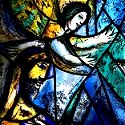
[ The Sabbath that immediately precedes the holiday of Purim is called Shabbat Zachor, the "Sabbath of Remembrance," where we recall the fateful end of the enemies of God.... ]
02.29.12 (Adar 6, 5772) During the Torah reading service of Shabbat Zachor we are commanded to "remember" (זָכוֹר) how the nation of Amalek spitefully attacked the Jewish people during the Exodus from Egypt:
"Remember (זָכוֹר) what Amalek did to you by the way, when you came forth out of Egypt; How he met you by the way, and struck at your rear, all who were feeble behind you, when you were faint and weary; and he did not fear God. Therefore it shall be, when the LORD your God has given you rest from all your enemies around, in the land which God gives you for an inheritance to possess, that you shall blot out the remembrance of Amalek from under heaven; you shall not forget" (Deut. 25:17-19).
These verses add some details that were left out of the account given in the Book of Exodus (i.e., Exod. 17:8-16). For example, here we learn that Amalek attacked Israel "from the rear," slaughtering the weakest members of the community first. In addition, we are told that Amalek acted with such cruelty because "he did not fear God" (לא יָרֵא אֱלהִים). Nehama Leibowitz writes, "After the Exodus mankind as a whole might have taken one great step further and acknowledged the sovereignty of the God of justice and truth, but then along came Amalek and, unrestrained by the dread and awe that kept all the nations of the world in check, showed the way for the others. What was there to fear? That a people had gone forth from the land of Egypt. Now they were wandering in the wilderness, weary and struggling. Why should they not be attacked? This was the way of the world..." (Leibowitz: Studies in the Parshah). Yes, that's surely "the way of the world" - to bully the weak, to terrorize the righteous, to practice cruelty, and to engage in bloodlust. It is the common approach of nearly all governments in the world and the preferred approach of various religious cults that refuse to truly "fear the LORD...."
God does not want us to forget the attack by Amalek since it symbolizes all subsequent spiritual warfare in the lives of His people. Recall that while the battle raged, Moses (accompanied by Aaron and Hur) went to the top of the hill holding his staff. When he raised his hands in prayer to the LORD, the Israelites prevailed, but once Moses' hands became heavy, the Amalakites prevailed. The battle lasted until sunset, when Amalek was finally defeated. It was an all-day battle, fought in the light.... To commemorate the victory, Moses built an altar and called it, Adonai Nissi (יהוה נִסִּי) - the LORD is my banner (or the LORD is my Miracle), saying, "A hand upon the throne of the LORD (כִּי־יָד עַל־כֵּס יָהּ). The LORD will have war with Amalek from generation to generation" (Exod. 17:16). Moses' outstretched hands were as "a hand upon the throne" of the LORD Himself. Likewise, our victory in the battle against spiritual darkness comes through persistent appeals to the LORD for help...
Just as the Torah commands us to remember (זָכוֹר) the Shabbat to keep it holy (Exod. 20:8); to remember (זָכוֹר) the Passover redemption (Exod. 13:3), and to remember (זָכוֹר) what God did to Miriam (Deut. 24:9), so we are commanded to remember (זָכוֹר) what Amalek did to Israel (Deut. 25:17). To fulfill this commandment, Jewish tradition publicly recites these verses on the Shabbat before Purim (called Shabbat Zachor) so that the 'wiping-out' of Amalek might be connected with the 'wiping-out' of Haman the Agagite, i.e., a descendant of Amalek (Esther 3:1). In addition, it is customary for Jewish soferim (scribes) to literally blot out the name Amalek when they test their quills before writing a Torah scroll....

There is a paradox in the commandment, however, since how can the memory of Amalek be "blotted out" if are commanded to recall it? How it is possible to "remember" something God wants us to forget? After all, if the LORD wanted the Amalekites to be forgotten, then why mention their name? Why should we be commanded to remember Amalek at all?
It should be clear that "Amalek" denotes something more than a particular wicked tribe that attacked the children of Israel. No, Amalek symbolizes the collective "children of darkness" and servants of evil that abound in the world. Historically, Amalek may have been a grandson of Esau and chief of an Edomite tribe (Gen. 36:12, 16), but he is also described as "first among the nations" (רֵאשִׁית גּוֹיִם), even predating the time of Abraham (Gen. 14:7, Num. 24:20). In Augustine's terms, Amalek represents the "City of the World," whereas Israel represents the "City of God." It is in this sense that "Amalek" represents children of darkness in this world, the perpetual enemies to the Kingdom of God: "The LORD will have war with Amalek from generation to generation" (Exod. 17:16).
The name "Amalek" (עֲמָלֵק) begins with the letter Ayin (symbolizing the eye) and equals 240 in gematria -- the same value for safek (סָפֵק), the Hebrew word for doubt. Amalek therefore suggests "the eye of doubt," or even "the severed eye" (the Hebrew verb מָלָק means "to chop" or "sever" in reference to the "eye" of Ayin). Amalek therefore represents spiritual blindness as it acts in the world... God used the tribe of Amalek to attack Israel during the time of the Exodus because the people doubted the LORD by asking one another, "Is the LORD among us or not?" (Exod. 17:7-8). Note that the gematria of Haman (הָמָן) is 95 - the same as for ha-melekh (הַמֶלֶךְ), "the king," suggesting that people like Haman are invested with power whenever we doubt the Divine Presence in our midst.
Wiping out Amalek, then, is a call to spiritual warfare, and the weapon of our warfare is the truth of the salvation of God lived out on our lives (2 Cor. 10:4). We must "cast of the works of darkness and put on the weapons (τὰ ὅπλα) of light" (Rom. 13:12). We practice the ministry of reconciliation using "truthful speech, and the power of God; with the weapons of righteousness (τῶν ὅπλων τῆς δικαιοσύνης) for the right hand and for the left" (2 Cor. 6:7). We are to present the use of our bodies to God as "weapons (ὅπλα) for righteousness" (Rom. 6:13). Unlike the doubtful Amalek, the righteous are called to walk in emunah (faith) with ayin ha-tovah ("the good eye") of trust. We are called "children of light" (בְּנֵי הָאוֹר) who walk in the light (John 12:36; Eph. 5:8; 1 Thess. 5:5; 1 John 1:7).
וּבְחַסְדְּךָ תַּצְמִית איְבָי וְהַאֲבַדְתָּ
כָּל־צֲררֵי נַפְשִׁי כִּי אֲנִי עַבְדֶּךָ׃
uv·chas·de·kha · tatz·mit · oy·ye·vai · ve·ha·a·vad·ta
kol-tzo·ra·rei · naf·shi · ki · a·ni · av·de·kha

"And in your steadfast love you will cut off my enemies, and you will destroy
all the adversaries of my soul, for I am your servant."
(Psalm 143:12)

The Targum Yonatan says, "you shall blot out the memory of Amalek from under the heavens; but of the days of the King Messiah you shall not be unmindful." The commandment to "blot out" Amalek ultimately will ultimately be fulfilled in the Messianic Kingdom to come, "when the LORD your God has given you rest from all your surrounding enemies in the land the LORD your God is giving you as your inheritance to possess" (Deut. 25:19). At that time all memory of Amalek will be "blotted out" from under heaven just as God will "wipe away" all tears from our eyes... This is a glorious truth we should never forget, despite the condition of this world and the apparent upper hand of the "Amalekites."
Meanwhile we are engaged in spiritual warfare and must be armed for the battle. "Since therefore the Messiah suffered in the flesh, arm yourselves (ὁπλίζω) with the same way of thinking" (1 Pet. 4:1). Be sober and vigilant. Put on the whole armor of God, because we wrestle against spiritual forces of evil at work in the world today (Eph. 6:10-18). "Be watchful, stand firm in the faith, act like men (ἀνδρίζω), be strong" (1 Cor. 16:13). In God's power you will "tread upon the lion and cobra; the young lion and the serpent you will trample down" (Psalm 91:13; Luke 10:19). May the LORD help us "stand firm in one spirit, with one mind fighting together (i.e., συναθλέω from συν, "with" and ἀθλέω, "contend," "fight") for the faith of the gospel" (Phil. 1:27). Amen.
 |
Folly and Wisdom...

02.28.12 (Adar 5, 5772) "For the word of the cross [i.e., ὁ λόγος ὀ τοῦ σταυροῦ - i.e., the doctrine of the cross] is folly to those who are perishing..." But why is it regarded it as folly? Surely not because Yeshua died as a martyr for his faith, for even worldly wisdom may acknowledge the nobility of this (for example, when it esteems the death of the pagan philosopher Socrates at the hands of the Athenians). No, the offense of the cross comes from its message that we are helpless and lost apart from divine intervention. The cross is an affront to the aspirations of human reason because it states that through the lowliness and sacrifice of Yeshua - and only through Him - may a person be healed by God; and there is categorically no other way. The cross therefore exposes the sham of so-called worldly wisdom, proving it to be worthless and vain. However, to the person of faith, the cross is "the power of God (גְּבוּרַת אֱלהִים) for those being saved" (1 Cor. 1:18).
The Hebrew word for salvation (יְשׁוּעָה) comes from a root (ישׁע) that means to "make wide," to make "broad," "spacious," or "free [from what blocks or holds in bondage]." The word is used to describe deliverance from Egypt (Exod. 14:13; Deut. 33:29), victory over Israel's enemies (Num. 10:9; Psalm 44:7), release from exile (Isa. 46:13; Ezek. 44:22), and the divine preservation and blessing of the Jewish people (Jer. 14:8). The word is also associated with deliverance from sin and its penalty (Jer. 17:14; Psalm 51:12,14). The LORD God of Israel is called the Savior (Isa. 45:21] - (i.e., moshia [מוֹשִׁיעַ] - from the same root). The Name of "Jesus" is Yehoshua (יְהוֹשׁוּעַ) in Hebrew, from יְהוָה and יָשַׁע, which means "YHVH is salvation" or "YHVH saves."
אָנכִי אָנכִי יְהוָה
וְאֵין מִבַּלְעָדַי מוֹשִׁיעַ
a·no·khi · a·no·khi · Adonai
ve·ein · mi·bal·a·dai · mo·shi·a

"I, even I am the LORD,
and besides me there is no Savior."
(Isa. 43:11)
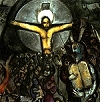
In this connection, note that some Bible translations print the words of Jesus in red, though of course we should likewise mark the words of YHVH (יְהוָה), since YHVH is indeed the Moshia' (מוֹשִׁיע) - the Savior and LORD of all....
Note: For more on the subject of the scandal of the gospel and the offence of the cross, please see the Article pages.
Parables and Revelation

[ The following is related to the Holiday of Purim, which begins Wed. March 7th this year. ]
02.28.12 (Adar 5, 5772) Undoubtedly Yeshua often taught in parables because they simultaneously conceal and reveal the truth. A parable obscures the truth to those who don't really want it; just as it reveals the truth to those who do (Luke 8:9-10). Since Yeshua's whole life was a parable of sorts - a "disguise" that led to the victory of our deliverance (Phil. 2:7) - it is not surprising that he regularly used "figures of speech" to provoke people to examine their own heart attitude and faith... In this connection note that Yeshua never explained the "mysteries of the kingdom of God" directly to the crowds, nor did He ever pander to the crowd's clamor or interests. His message is always meant for the individual soul who was willing to follow Him -- to the one who had "ears to hear."
Reading the parables can help us take inventory of our lives. For example, whenever we hear the famous "parable of the sower" we are reminded that God is like a farmer who sows seed upon the soil of human hearts (the quality of which may be hard, shallow, choked, or good). If we are honest with ourselves, we will see our own hardness, shallowness, and selfishness in contrast to the fruitfulness marked by the good soil, and this may prompt us to ask God to help us... Only the new heart (lev chadash) created by power of God's Spirit can possibly yield the fruit of the Spirit. Yeshua therefore warns us: "Take care then how you hear, for to the one who has, more will be given, and from the one who has not, even what he thinks that he has will be taken away" (Luke 8:18).
We must remember that fruit does not immediately crop up but requires time and its own season... The process of spiritual growth is ultimately mysterious and divine: "The Kingdom of God is like someone who spreads seed on the ground. He goes to sleep and gets up, night and day, and the seed sprouts and grows, though he does not know how. By itself (αὐτομάτη, "automatically") the soil produces a crop, first the stalk, then the head, then the full grain in the head. And when the grain is ripe, he comes in with his sickle because the harvest has come" (Mark 4:26-29). With God all things are possible, and the life of God is a miracle that comes from God's own source of Life. It is the fruit of the Spirit, after all, and not the result of human effort or moral reformation...
 |
 |
Divine Discontent...
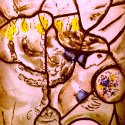
02.27.12 (Adar 4, 5772) "Love not the world, neither the things that are in the world. If any man love the world, the love of the Father is not in him" (1 John 2:15). The way of faith always represents collision with the world (κόσμος) and its philosophy of the "good life." Happy are those who "hunger and thirst" for righteousness, who refrain from this world and make themselves poor because of inner heartache. For them no amount of the world's pleasures can obscure the difference between what is and what ought to be... This world is at best a corridor to the world to come, a "valley of decision" about what we ultimately choose to believe and to love...The heart of faith looks forward to "the city that has foundations, whose designer and builder is God" (Heb. 11:10).
צָמְאָה נַפְשִׁי לֵאלהִים לְאֵל חָי
מָתַי אָבוֹא וְאֵרָאֶה פְּנֵי אֱלהִים
tza·me·ah · naf·shi · le·lo·him · le·el · chai
ma·tai · a·vo · ve·e·ra·eh · pe·nei · E·lo·him

"My soul thirsts for God, for the living God.
When shall I come and appear before God?"
(Psalm 42:2)

There is a great danger to become so assimilated into this world that there is no longer any collision, no longer any protest, but merely the whimper of the soul that begs to be left alone from the general toil and troubles of this age... Conscience is seared; natural affections have been abandoned; and the "life" of the soul becomes a mere cipher, a phantom, a ghost... This is the scheme of the worldly dialectic that traps the human soul into living and dying for the sake of sheer vanity. May God help us not to so waste our days... The core prayer of the godly soul is always, "Help me, O LORD my God! Save me according to your steadfast love" (Psalm 109:26). Empty our hearts from vanity, O LORD, and afflict us with hunger and thirst for You, for you alone are what we really need....
עָזְרֵנִי יְהוָה אֱלהָי
הוֹשִׁיעֵנִי כְחַסְדֶּךָ
oz·rei·ni · Adonai · E·lo·hai
ho·shi·ei·ni · khe·chas·de·kha

"Help me, O LORD my God!
Save me according to your steadfast love"
(Psalm 109:26)

Parashat Tetzaveh
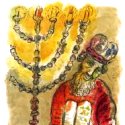
[ The following is related to this week's Torah reading (Tetzaveh). Please read the Torah portion to "find your place" here. ]
02.26.12 (Adar 3, 5772) This week's Torah portion continues the description of the Tabernacle, though the focus shifts to those who will serve within it, namely the kohanim (i.e., priests of Israel). It begins with instructions for kindling the menorah (מְנוֹרָה), the golden seven-branched lampstand that stood in the Holy Place: "Command the people of Israel to bring to you pure beaten olive oil (שֶׁמֶן זַיִת) for the light, to offer up (olah) a continual lamp (i.e., ner tamid: נֵר תָּמִיד)." (Note that the word "menorah" comes from the root word ner, meaning "lamp.") According to the Mishnah (Menachot 8:4), only the purest olive oil could be used for the lamps of the menorah (i.e., only the first drop from each olive, to avoid any sediment). Moreover, as described later in parashat Beha'alotekha, the wicks of the menorah were to be bent toward the central wick, thereby signifying the glory of the shamash, or Servant Branch of the LORD (Num. 8:1-2). Just as oil was intended to emit the purest kind of light, so Yeshua was indeed the light of the world (John 8:12).
All priests were required to wear four garments – linen breeches, tunics, sashes, and turbans, but in addition to these the High Priest (Kohen Gadol) was to wear a blue robe that was decorated with pomegranates and golden bells. Over this robe, an ephod – an "apron" woven of gold, blue, purple, and crimson – was to be worn, upon which was attached a "breastplate" (choshen mishpat) inlaid with precious stones inscribed with the names of the 12 tribes of Israel. The ephod also contained a pouch holding two unique gemstones called the urim v'tummin (אוּרִים וְתוּמִּים), usually translated as "lights and perfections." According to the Targum Jonathan, when a matter was brought to the High Priest for settlement, he would sometimes hold the urim (from אוֹר, "light") and tummin (from תָּם, "integrity" or "completeness") before the menorah and the Shekhinah would irradiate various letters inscribed on the gemstones to reveal the will of God. Finally, the High Priest would wear a golden plate (called a "tzitz") engraved with the words, "Holy to the LORD" (קדֶשׁ לַיהוָה) upon the front of his turban.

One detail you might miss as you read the description of the priestly garments, however, is that there is no mention of shoes, and in fact neither the regular priests nor the Kohen Gadol (High Priest) were allowed to wear shoes or slippers. In other words, they served in the Mishkan (and later at the Temple) barefoot.
כִּי־טוֹב יְהוָה לְעוֹלָם חַסְדּוֹ
וְעַד־דּר וָדר אֱמוּנָתוֹ
ki · tov · Adonai · le·o·lam · chas·do,
ve·ad · dor · va·dor · e·mu·na·to

"For the LORD is good; His steadfast love is eternal;
His faithfulness is for all generations."
(Psalm 100:5)

Download Study Card
The priests were to be ordained in a seven-day consecration ceremony that involved washing, dressing, and anointing them with oil and blood, followed by the offering of sacrifices. The priests were further instructed to present burnt offerings twice a day upon the copper altar. The portion ends with a description of the Golden Altar (i.e., Altar of Incense) upon which incense was offered twice a day by the priests when the Menorah lamps were serviced. In addition, the blood of atonement was to be placed on its corners once a year, during the Yom Kippur ritual.
Note: I have been ill over the weekend, chaverim, and humbly ask for your prayers. Thank you for your help in the Spirit, which surely helps sustain this work...
Shabbat Zachor...

02.26.12 (Adar 3, 5772) The Shabbat that immediately precedes the holiday of Purim is called Shabbat Zakhor - the "Sabbath of Remembrance." The Maftir (additional reading) commands us to "remember" (זָכוֹר) how the nation of Amalek functioned as Satan's emissary by attacking the Jews at Rephidim, immediately following the Exodus from Egypt (see Exod. 17:8-16). After Israel routed the attack, God told Moses, "Write this as a memorial in a book and recite it in the ears of Joshua, that I will utterly blot out the memory of Amalek from under heaven" (Exod. 17:14). Moses later explained that Amalek did not fight using conventional methods of war but rather attacked and killed the weakest members of Israel, "those who were lagging behind" in the camp (Deut. 25:17-19). This cowardly approach represented the first attack of God's newly redeemed people, a Satanic assault that God vowed never to forget.... Amalek therefore embodies satanic forces arrayed against the people of God.
Note that the name "Amalek" (עֲמָלֵק) begins with the letter Ayin (symbolizing the eye) and equals 240 in gematria -- the same value for safek (סָפֵק), the Hebrew word for doubt. Amalek therefore suggests "the eye of doubt," or even "the severed eye" (the Hebrew verb מָלָק means "to chop" or "sever" in reference to the "eye" of Ayin). Amalek therefore represents spiritual blindness as it acts in the world...
The additional Haftarah portion (1 Sam. 15:2-34) speaks of how King Saul later failed to "devote to destruction" the evil tribe of Amalek -- a mistake which cost him the kingship of Israel. Samuel's rebuke of Saul's compromise is always timely: "Behold, to obey is better than sacrifice, and to listen than the fat of rams.... Because you have rejected the word of the LORD, he has also rejected you from being king."
These two readings were selected before Purim because Haman was an Agagite (Esther 3:1), i.e., a direct descendant of Agag, the king of Amalek (whom Saul nearly spared, see 1 Sam. 15:32-33), and we should therefore link the 'wiping-out' of Haman with the 'wiping-out' of Amalek. The spiritual war between the light and the darkness admits of no compromise. For more about this Sabbath, click here.
 |
Shabbat Table Talk - Terumah

[ The following is related to this week's Torah reading (Terumah). Please read the Torah portion to "find your place" here. ]
02.24.12 (Adar 1, 5772) Despite being sick with the flu I managed to update the "Table Talk" page for parashat Terumah for this Sabbath. Like others on this site, first I include a brief summary of the reading followed by a set of questions and answers. Hopefully this material will prompt some interesting discussion. You can download the PDF file from the linked page (above) or by directly clicking here.
Sometimes when we are in pain, all we can do is cry out to the LORD for deliverance... It is not a question of God's goodness to us, but rather how He might use affliction to mend our hearts... As C.S. Lewis once said, "We are not necessarily doubting that God will do the best for us; we are wondering how painful the best will turn out to be" (Letters of C.S. Lewis, 1964). There is a trust issue in suffering, and an intimacy that comes through its fires. As Kierkegaard reminds us, "It is one thing to conquer in the hardship, to overcome the hardship as one overcomes an enemy, while continuing in the idea that the hardship is one's enemy; but it is more than conquering to believe that the hardship is one's friend, that it is not the opposition but the road, is not what obstructs but what develops, is not what disheartens but ennobles" (Kierkegaard: Four Upbuilding Discourses, 1844).
As King David once wrote, "At an acceptable time, O God, in the abundance of your steadfast love answer me in your saving faithfulness. Deliver me from sinking in the mire; let me be delivered from my enemies and from the deep waters. Let not the flood sweep over me, or the deep swallow me up, or the pit close its mouth over me. Answer me, O LORD, for your steadfast love is good; according to your abundant mercy, turn to me."
עֲנֵנִי יְהוָה כִּי־טוֹב חַסְדֶּךָ
כְּרב רַחֲמֶיךָ פְּנֵה אֵלָי
a·nei·ni · Adonai · ki · tov · chas·de·kha
ke·rov · ra·cha·me·kha · pe·neh · e·lai

"Answer me, O LORD, for your steadfast love is good;
according to your abundant mercy, turn to me."
(Psalm 69:16)

"But You, O GOD my Lord, do Thou for me for your own Name's sake; because your steadfast love is good, deliver me" (Psalm 109:21). "Do thou for me" is the confession that God alone has the power to help. Asking God to bring glory to His own Name -- to honor and magnify His Name -- is the theme of all true intercession.
Sickness has a way of focusing the heart and mind, reminding us that "today is the tomorrow of yesterday." Life is short, and our need is great to turn to the LORD and take hold His promises. We take comfort that God is for us the God of salvation: "Blessed be the Lord, who daily bears us up; God is for us our salvation. Selah. Our God is a God of salvation (יְשׁוּעָה), and to GOD, the Lord, belong deliverances from death" (Psalm 68:19-20).
הֲשִׁיבֵנוּ יְהוָה אֵלֶיךָ וְנָשׁוּבָה
חַדֵּשׁ יָמֵינוּ כְּקֶדֶם
ha·shi·ve·nu · Adonai · e·ley·kha · ve·na·shu·vah
cha·desh · ya·me·nu · ke·ke·dem

"Turn us to yourself, O LORD, and we shall be turned.
Renew our days as of old"
(Lam. 5:21)

All those who are "fathered by God" conquer the world, since God imparts to us the victory of faith by means of His powerful Spirit (1 John 5:4). Therefore the heart of faith says, "In all these things [afflictions, tribulations, etc.] we are 'more than conquerors' (lit., "hyper-conquerors," i.e., ὑπερνικῶμενfromὑπέρ, "hyper" + νικάω, "to overcome") through Him that loved us (Rom. 8:37).
Shabbat Shalom Chaverim! Beauty for ashes! Be strong and let us be strengthened as we rest in Yeshua, our great LORD and Messiah, our Healer and our Deliverer. Amen.
The Goal of Knowledge...

[ The following is related to this week's Torah reading (Terumah). Please read the Torah portion to "find your place" here. ]
02.23.12 (Shevat 30, 5772) According to Jewish tradition, when God decided to give the Torah to the Israelites, he asked for a guarantor - a surety that the Torah would not be forgotten. Moses first offered the merit of patriarchs, then the prophets, and then the elders of Israel. Each was rejected by God. Finally Moses offered the children as the pledge, and God accepted. Therefore upon the cover of the ark of the covenant (i.e., the kapporet) were fashioned two cherubim (i.e., angel-like figures) that faced one another (Exod. 25:17-18). According to the Talmud (Succah 5b), each cherub had the face of a child - one boy and one girl - and their wings spread heavenward as their eyes gazed upon the ark (Exod. 25:20). God's voice would be heard only in the midst of innocence, humility, purity, and hope. Therefore Jewish children traditionally begin studying Torah by reading from the Book of Leviticus, and the role of Torah education is considered central to the worship of God. In other words, godly education is a process of being made a "fit vessel" for the service of God in the world. All other ends of knowledge ultimately exist for this purpose, and rightly understood, education is a form of worship. "The world exists because of the breath of the schoolchildren who study Torah" (Talmud Bavli Shabbat 119b).
The image of two innocent children's faces peering before the Throne of God gives fresh meaning to the statement that unless you "turn and become like children, you will never enter the kingdom of heaven" (Matt. 18:1-3). The most important things of life are only known through love, and so-called knowledge apart from love is actually nothing (1 Cor. 13:2). Knowledge "puffs up" (φυσιόω), that is, it swells and feeds the ego and its posture before others, whereas love "builds up" (οἰκοδομέω), that is, it is other-focused and seeks to create a sense of habitation and a place of safety. "If anyone imagines that he knows something, he does not yet know as he ought to know; but if anyone loves God, he is known by Him" (1 Cor. 8:2-3). In other words, there is a holy "oughtness" to the way of love, a deference for the sake of others and their needs, and a desire to see them established in God's grace. Love is the source and end of true knowledge...
Personal Update: The kids are finally over the stomach flu, though both Olga and I have been sick with it the last couple of days, and I am still running a fever with bodyaches. Thank you for your prayers and concern for us, chaverim...
רְפָאֵנִי יְהוָה וְאֵרָפֵא
הוֹשִׁיעֵנִי וְאִוָּשֵׁעָה כִּי תְהִלָּתִי אָתָּה
re·fa·ei·ni · Adonai · ve·ei·ra·fei
ho·shi·ei·ni · ve·iv·va·shei·ah, · ki · te·hil·la·ti · at·tah

"Heal me, O LORD, and I shall be healed;
save me, and I shall be saved, for you are my praise."
(Jer. 17:14)
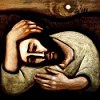
Download Study Card
Sanctuary of the Heart...
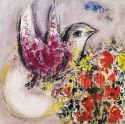
[ The following is related to this week's Torah reading (Terumah). Please read the Torah portion to "find your place" here. ]
02.22.12 (Shevat 29, 5772) In this week's Torah portion God asked the people to offer "gifts from the heart" to create a "place" for Him: "Let them make for me a sanctuary that I may dwell in their midst" (Exod. 25:8). The Hebrew word for "sanctuary" is mikdash (מקְדָּשׁ), which comes from the root word kadash (קָדַשׁ), "to be set apart as sacred." A mikdash is therefore a "set apart space," or a "holy place" that represents something treasured - a place of beauty and worship, a refuge, a place of rest. Other words that share this root include kedushah (holiness), kiddushin (betrothal), kaddish (sanctification), kiddush (marking sacred time), and so on. When God said, "Let them make for me a mikdash," then, he was inviting the people to make a sacred place within their hearts for His Presence to be manifest.... The "material" required to make this place was ultimately the heart, expressed in free-will offerings given to God.
The purpose of mikdash, this "set apart space," was for God to "dwell" in their midst. Note that the word "dwell" comes from a root (שָׁכַן) meaning to "lodge together" or to "lie down with someone," and therefore the Tabernacle was called the mishkan (מִשְׁכָּן), a "set apart place" intended for rest and intimacy. Inviting God's Presence within our hearts gives us communion and fellowship with Him. The sages note that the phrase, "that I may dwell in their midst" could be translated as "that I may dwell within them," suggesting that the point of the Tabernacle was to bring God within the hearts of His people... We must create a place within our hearts, in other words, for God to dwell within us... Yeshua likewise told us that we would experience peace and joy when we would "abide in Him." Note that the gematria of the word mishkan (מִשְׁכָּן) is 401, which is the same as the word shema (שְׁמַע), "hear!" or "listen" (Deut. 6:4). When we really stop to listen to the LORD, we will find His glorious and loving Presence...
Some of the sages have said that the physical Tabernacle (and later, the Temple) was given as a concession to the frailty of man. After all, when the people had the opportunity to encounter God without a mediator at Sinai, they shrank back in terror. The Tabernacle, then, presented a form of "mediation" that provided symbols to help bring "heaven down to earth." The physical presence of the Tabernacle attempted to convey a sense of the immanence of God in the world. "Holy holy holy is the LORD God of hosts; the whole world is filled with His glory" (Isa. 6:3). The Scriptures plainly teach, however, that there is literally no "place" where God can physically dwell. When King Solomon dedicated the Bet Ha-Mikdash, the Temple in Jerusalem, he rhetorically prayed: "Will God indeed dwell on the earth? Behold, heaven and the highest heaven cannot contain you; how much less this house that I have built! (1 Kings 8:27). Likewise the prophet Jeremiah reports the word of the LORD: "Do I not fill heaven and earth?" (Jer. 23:24) Understood in light of this truth, it is clear that the Tabernacle was meant to symbolize a deeper, spiritual reality of the heart. As Yeshua said, "The Kingdom of God is within you (Luke 17:21).
The deepest message of the Tabernacle, however, has to do with sacrificial love. The entire reason for the sacrificial system was to draw us close to God. The sacrifice of an innocent animal for the sake of a sinner provided tangible hope that a holy and perfectly righteous God made a way for love and acceptance to prevail. Indeed the idea of "sacrifice" is korban (קרְבָּן), a word that means to draw near (karov) to God. The various sacrificial rituals were "examples" (ὑπόδειγματα) and "shadows" (σκιάς) of the heavenly reality that was given in the sacrifice of Yeshua, the Lamb of God (Heb. 8:5; 10:1). Because of Yeshua, God draws near to us so that we can draw near to Him.... He is the ultimate "Korban" that brings us into eternal fellowship with God. Yeshua is the Father's "gift of the heart" given for you. The love of God put the blood of his son the cross, just as the love of God provided the altar at the Tabernacle. Both in the sacrificial rites of the brazen altar and in their later fulfillment in the crucifixion of Yeshua, the heart needs to trust in God's personal love. Yeshua stands at the door and knocks, ready to eat a "covenant ratification meal" with all who are trust in Him (Rev. 3:20).
May you find courage to open your heart to Him now...
 |
Prayer Request...

02.20.12 (Shevat 28, 5772) Both my young sons have been sick with the flu the last few days, and now I am dealing with the virus. Please offer up a prayer for healing for us, friends. This is a rough one. Thank you.
"There is no circumstance, no trouble, no testing, that can ever touch me until, first of all, it has gone past God and past Christ, right through to me. If it has come that far, it has come with a great purpose, which I may not understand at the moment..." - Alan Redpath
Parashat Terumah - תרומה

[ The following is related to this week's Torah reading (Terumah). Please read the Torah portion to "find your place" here. ]
02.19.12 (Shevat 27, 5772) Last week's Torah reading (Mishpatim) explained how the Israelites entered into covenant with the LORD at Mount Sinai. The terms of the covenant were written down in Sefer HaBrit ("the Book of the Covenant"), which contained a variety of laws to govern the Jewish people in the Promised Land. When the people agreed to obey the terms of the covenant, Moses took sacrificial blood and threw it on them saying, "Behold the blood of the covenant that the LORD has made with you in accordance with all these words." Moses then re-ascended the mount to receive the tablets of stone inscribed with the Ten Commandments and to learn additional Torah from the LORD.
While Moses was upon the mountain, he was given the extraordinary vision of the very throne of God and the altar that stood before it. In this week's reading (i.e., Terumah), God asked Moses to appeal to the Israelites to supply materials needed to represent the heavenly throne in the form of a tent-like structure called the Miskan (i.e., Tabernacle). Gold, silver, brass, red and purple yarns, fine linens, oils, spices, precious stones, etc., were needed. No gift was considered too small, and whoever felt prompted by the LORD to give did so freely, without compulsion (God's house is always built by love freely given). The LORD said to Moses, "Let them make me a sanctuary (mikdash) so that I may dwell in their midst. Exactly as I show you concerning the pattern of the Tabernacle, and of all its furniture, so you shall make it." The remainder of the portion begins describing the vision that the LORD gave Moses regarding the pattern according to which the Tabernacle and its various furnishings were to be made....
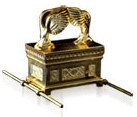 |
Notice that the portion begins with, "Take for Me an offering" (וְיִקְחוּ־לִי) instead of "Give for Me an offering" (Exod. 25:1-2). The sages explained that when we give tzedakah (charity), it may seem like we giving something from our own substance for the sake of another, but in truth we are actually taking, since we are spiritually receiving back much more than we give (both in this life and especially in the world to come). The reward we get in return for our giving is always much greater than whatever we originally gave. Thus, text implies that giving is really a kind of "taking..." This agrees with Yeshua's words that when we give to others we actually receive from God: "Give, and it will be given to you. Good measure, pressed down, shaken together, running over, will be put into your lap. For with the measure you use it will be measured back to you" (Luke 6:38).
This line of thinking goes way back in Jewish thinking. Rabbi Asi said, "Charity equals in importance to all other mitzvot combined," and Rabbi Yehudah likewise says, "Ten hard things have been created in the world. The rock is hard, but iron shatters it. Iron is hard, but fire softens it. Fire is powerful, but water extinguishes it. Water is heavy, but clouds carry it. Clouds are thick, but wind scatters them. Wind is strong, but a body resists it. The body is strong, but fear crushes it. Fear is powerful, but wine banishes it. Wine is strong, but sleep works it off. Death is stronger than all, yet tzedakah delivers from death, as is written, "Charity delivers from death" (Prov. 10:2).
Indeed, the New Testament continues the inner meaning of the Torah's revelation that we are blessed when we give terumah to those in need. "God loves a cheerful giver." Followers of the Mashiach Yeshua are to be marked by goodness (טוֹבָה) expressed in generosity (נְדִיבוּת). The fruit of the Spirit (פְּרִי הָרוּחַ) constitutes the supernatural outgrowth of the grace and love of God in the heart of one who trusts in Yeshua the Messiah (see John 15:1-8). Those who are righteous will walk in tzedakah, resembling the character of the LORD Himself (1 John 2:29).
 |
Shabbat Table Talk - Mishpatim

[ The following is related to this week's Torah reading (Mishpatim). Please read the Torah portion to "find your place" here. ]
02.17.12 (Shevat 24, 5772) A verse from our Torah portion this week alludes to the future redemption of the Jewish people: "a Hebrew slave shall serve six years and in the seventh he shall go out free" (Exod. 21:2). This of course refers to the law of release, or "Shemittah," when debts were canceled and slaves were set free. Notice, however, that the gematria of the term eved ivri (עֶבֶד עִבְרִי), "Hebrew slave," is 358, which is the same value as that for nachash (נָחָשׁ), "snake," and mashiach (מָשִׁיחַ), "Messiah." Man's first sin was disobeying the Torah of the LORD in the garden and heeding the will of the nachash. This act of rebellion made him into a slave. The Messiah sets man free, but regarding the Hebrew slavery, this deliverance will be fully accomplished at the end of the 6th year, i.e., the Sabbatical Year that denotes the final redemption and the world to come.
 |
It might surprise you that in the world to come (olam habah), both the weekly Sabbath day and the "New Moon" (i.e., Rosh Chodesh) will be observed by God's people: "From new moon to new moon, and from Sabbath to Sabbath, all flesh shall come to worship before me, declares the LORD" (Isa. 66:23). The Sabbath day testifies that God is both our personal Creator (Exod. 20:11; 31:17) and Redeemer (Deut. 5:15), and the New Moon testifies that God's purposes over history will indeed bear fruit for the glory of His Name (Rev. 22:1-2).
כּה אָמַר יְהוָה
שִׁמְרוּ מִשְׁפָּט וַעֲשׂוּ צְדָקָה
כִּי־קְרוֹבָה יְשׁוּעָתִי לָבוֹא
וְצִדְקָתִי לְהִגָּלוֹת
אַשְׁרֵי אֱנוֹשׁ יַעֲשֶׂה־זּאת
וּבֶן־אָדָם יַחֲזִיק בָּהּ
שׁמֵר שַׁבָּת מֵחַלְּלוֹ
וְשׁמֵר יָדוֹ מֵעֲשׂוֹת כָּל־רָע
ko · a·mar · Adonai
shim·ru · mish·pat · va·a·su · tze·da·kah
ki · ke·ro·vah · ye·shu·a·ti · la·vo
ve·tzid·ka·ti · le·hig·ga·lot
ash·rei · e·nosh · ya·a·seh · zot
u·ven · a·dam · ya·cha·zik · bah
sho·mer · shab·bat · me·chal·le·lo
ve·sho·mer · ya·do · me·a·sot · kol · ra

"Thus says the LORD:
Keep justice, and do righteousness,
for soon my salvation will come,
and my righteousness be revealed.
Blessed is the man who does this,
and the son of man who holds it fast,
who keeps the Sabbath, not profaning it,
and keeps his hand from doing any evil."
(Isa. 56:1-2)
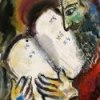
The LORD continues: "And the foreigners who join themselves to the LORD, to minister to him, to love the name of the LORD, and to be his servants, everyone who keeps the Sabbath and does not profane it, and holds fast my covenant -- these I will bring to my holy mountain, and make them joyful in my house of prayer; their burnt offerings and their sacrifices will be accepted on my altar; for my house shall be called a house of prayer for all peoples. The Lord GOD, who gathers the outcasts of Israel, declares, "I will gather yet others to him besides those already gathered" (Isa. 56:6-8).
It is a time-honored custom to discuss the weekly Torah portion with your family and friends during the Sabbath. To help make this a bit easier, I have written a new "Table Talk" for Mishpatim that includes a brief summary of the reading followed by a set of questions (with answers) and some discussion topics. Hopefully this material will help you savor the Torah of our LORD and give you new insight into the teaching of Yeshua our Messiah... You can download the PDF file from the linked page (above) or by directly clicking here:
The Spirit cries out: "Come, everyone who thirsts, come to the waters; and he who has no money, come, buy and eat! Come, buy wine and milk without money and without cost. Why do you spend your money for that which is not bread, and your labor for that which does not satisfy? Listen diligently to me, and eat what is good, and delight yourselves in rich food. Incline your ear, and come to me; hear, that your soul may live; and I will make with you an everlasting covenant, my steadfast, sure love for David" (Isa. 55:1-3). As Yeshua said, "Whoever drinks of the water that I will give him will never be thirsty again; the water that I will give him will become in him a spring of water welling up to eternal life" (John 4:14).
Only Yeshua gives us life; only He can truly satisfy the inner thirst of our souls... "I tell you the solemn truth, the one who hears my message and believes the One who sent me has eternal life (חַיֵּי עוֹלָם) and will not be condemned, but has passed (i.e., μετά + βαίνω lit., "crossed over" [עָבַר]) from death to life" (John 5:24).
Shabbat Shalom, chaverim!
 |
Delighting in the Torah...

[ The following is related to this week's Torah reading (Mishpatim). Please read the Torah portion to "find your place" here. ]
02.16.12 (Shevat 23, 5772) The Scriptures declare: "Blessed is the man who ... delights in the Torah of the LORD (בְּתוֹרַת יְהוָה); all that he does shall prosper" (Psalm 1:1-3). Considering the conspicuous lack of delight for the Torah expressed in most churches today, however, you would almost think that this "blessed state" avowed by the Holy Spirit has somehow been annulled and no longer applies to the Christian... Then again, just as a veil remains over the eyes of unbelieving Jews regarding the message of the new covenant, so a veil remains over the eyes of many Christian theologians regarding the message of the older covenant (2 Cor. 3:14-16). The careful distinctions made by the Apostle Paul regarding the nature of the Torah are often overlooked, with the unhappy result that "antinomialism" (literally, "anti-law-ism") has been inculcated as proper Christian doctrine today. Sadly, for many Gentile Christians today, the Torah is erroneously regarded as an enemy of faith (i.e., "legalism") and therefore is no longer a matter of much delight...
It is important to remember, however, that while we are no longer 'under' the legal constraints of the covenant given at Sinai (Rom. 3:23), we are nevertheless repeatedly instructed to delight 'in' the Torah and to meditate on its precepts day and night (Psalm 1:2; 19:8; 119:15, 47, 97; Neh. 8:12, etc.). As it is written in Proverbs: "If you seek it [i.e., the wisdom revealed in the Torah] like silver and search for it as for hidden treasures, then you will understand the fear of the LORD and find the knowledge of God" (Prov. 2:4-5). If worldly men seek money and riches for life in this world, should we be less earnest in our pursuit of true and eternal riches?
לא־יָמוּשׁ סֵפֶר הַתּוֹרָה הַזֶּה מִפִּיךָ
וְהָגִיתָ בּוֹ יוֹמָם וָלַיְלָה
לְמַעַן תִּשְׁמר לַעֲשׂוֹת כְּכָל־הַכָּתוּב בּוֹ
כִִּי־אָז תַּצְלִיחַ אֶת־דְּרָכֶךָ וְאָז תַּשְׂכִּיל
lo · ya·mus · se·fer · ha·to·rah · haz·zeh · mi·pi·kha
ve·ha·gi·ta · bo · yo·mam · va·lai·lah
le·ma·an · tish·mor · la·a·sot · ke·khol · ha·ka·tuv · bo
ki · az · tatz·li·ach · et · de·ra·khe·ka · ve·az · tas·kil

"This Book of the Torah shall not depart from your lips,
but you shall meditate on it day and night,
so that you may be careful to do according to all that is written in it.
For then you will make your way prosperous and then you will have good success."
(Joshua 1:8)

Where it is written, "all Scripture is breathed out by God (θεόπνευστος / עַל־פִּי רוּחַ אֱלהִים) and is profitable for teaching, for reproof, for correction, and for training in righteousness, that the man of God may be complete, equipped for every good work" (2 Tim 3:16-17), it is evident that the Scriptures referred to here are the Jewish Scriptures (i.e., the Torah, the Prophets, and the Writings), since they are the foundation, the context, and the overarching matrix for the later New Covenant revelation... These were the Scriptures Yeshua used to contextualize and explain his ministry to his followers: "And beginning with Moses and all the Prophets, he interpreted to them in all the Scriptures the things concerning himself" (Luke 24:27; John 1:45). In other words, the Torah has both a logical, a linguistic, and a theological priority regarding our understanding of the New Testament Scriptures, and the failure to read in context invariably leads to faulty interpretations and doctrinal errors of various kinds. "To the Jew first, and [then] to the Greek" (Rom. 1:16) is a principle not only of how the gospel message would transcend ethnic Israel to be offered to all the nations, but also about how we should approach the subject of Biblical hermeneutics.... God "breathed out" (θεόπνευστος) his revelation in order, and the message itself must be understood in light of that order (John 4:22).
The Holy Spirit still speaks to the heart of those who love Yeshua, the everlasting King of the Jews: "Oh how I love your Torah (תּוֹרָה); it is my meditation all the day."
מָה־אָהַבְתִּי תוֹרָתֶךָ
כָּל־הַיּוֹם הִיא שִׂיחָתִי
mah · a·hav·ti · to·ra·te·kha
kol · ha·yom · hi · si·cha·ti

"Oh how I love your Torah;
It is my meditation all the day."
(Psalm 119:97)

Hebrew Study Card
This verse begins the "Mem section" of the Psalm 119 acrostic. Mem is the letter of "water" (mayim), symbolizing the "spring" of the Torah. In traditional soferut (scribal arts), the letter Mem (מ) is formed from two parts: a Vav (ו) and a Kaf (כ), the gematria of which equals 26, the same value for the sacred Name YHVH (יהוה). The Torah (תּוֹרָה) is central to the revelation of the LORD, just as Yeshua is forever "the Voice of the Living God speaking from the midst of the fire" (Deut. 5:26, Matt. 17:1-3).
Proving of the Heart...

02.15.12 (Shevat 22, 5772) The sages say, "Repent one day before you die." But who knows the day of one's death in advance? Perhaps your name will be called today, ending your lease on life in this world. Are you ready? Are you prepared to appear before God your Creator and Redeemer? The apostle Paul urges us to undergo self-examination: "Put yourselves to the test (ἑαυτοὺς πειράζετε) to see if you are in the faith; prove yourselves (ἑαυτοὺς δοκιμάζετε) to see whether Yeshua the Messiah lives within you - lest you fail the test and be disapproved (ἀδόκιμος)" (1 Cor. 13:5).
Whether Yeshua is living in you (and you are living in Him) is the most important question of your life upon which everything else turns. The great mystery is "Christ in you, the hope of glory" (Col. 1:27). As Ravenhill once said, "I don't ask people if they're saved anymore; I look them straight in the eye and say, "Does Christ live inside you?" Are you connected with Him in the truth? Are you drawing life from His life? Do you really live in Yeshua?
Paul said we were to both "test ourselves" with regard to the intellectual content of our faith and also to "prove ourselves" with regard to the quality of our spiritual life. Notice that the verb "to prove" (dokimadzo: δοκιμάζω) means to test something (such as a precious metal) by fire to discover its quality and purity. The analogy here is straightforward. The quality of our faith will be revealed during times of testing and difficult circumstances. Are we walking in love, joy, and peace - despite the challenges and tests of this life? If our faith regularly fails in the crucible of testing, we may need to reexamine its authenticity (Prov. 24:10).
חָקְרֵנִי אֵל וְדַע לְבָבִי
בְּחָנֵנִי וְדַע שַׂרְעַפָּי
וּרְאֵה אִם־דֶּרֶךְ־עצֶב בִּי
וּנְחֵנִי בְּדֶרֶךְ עוֹלָם
chok·re·ni · el · ve'da · le·va·vi
be·cha·ne·ni · ve'da · sar·a·pai
u·reh · im · de·rekh · o·tzev · bi
u'ne·che·ni · be·de·rekh · o·lam

"Prove me (δοκιμάζω), O God, and know my heart!
Test me and know my concerns!
And see if there be any idolatrous way in me,
and lead me in the way everlasting!"
(Psalm 139:23-24)
δοκίμασόν με ὁ θεός καὶ γνῶθι τὴν καρδίαν μου
ἔτασόν με καὶ γνῶθι τὰς τρίβους μου
καὶ ἰδὲ εἰ ὁδὸς ἀνομίας ἐν ἐμοί
καὶ ὁδήγησόν με ἐν ὁδῷ αἰωνίᾳ (LXX)
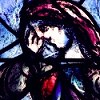
A proven faith evidences the Fruit of the Holy Spirit, though some other characteristics include an abhorrence for personal sin and the desire to obtain God's forgiveness; a hunger and thirst for God's righteousness to be manifest; a sincere willingness to obey the LORD and keep His commandments, and a heartfelt love for God and others. These characteristics mark genuine teshuvah ("repentance"), that is, a turning away from inner darkness to the light of the Divine Presence. Teshuvah is a miracle that transforms the person so that the inner man becomes a new creation (2 Cor. 5:17). Spiritual rebirth implies a new heart with a new set of affections: "I am crucified with Messiah. It is no longer I who live, but Messiah who lives in me. And the life I now live in the flesh I live by faith in the Son of God, who loved me and gave himself for me" (Gal. 2:20).
The Jewish view of truth is inherently existential - how you live reveals what you believe, and vice-versa. The truth must be lived in order to be real. We are to be "doers" of the Word, and not hearers only, since faith without works is dead and leads to self-deception (lit., "reasoning around" the truth, i.e., παραλογίζομαι, from παρά, "around, beside" and λογίζομαι, "to reason"). Only those who follow through and live out their faith will be blessed in their actions (James 1:22, 25). This mirrors Yeshua's statement, "If you know these things, blessed are you if you do them" (John 13:17).
There remains the frightening possibility that the soul - even the soul that professes faith in the Messiah - may fail the test of genuine faith and be rejected (i.e., adokimos: ἀδόκιμος, "tested and found useless"). A person who merely professes love for God with his lips but whose heart is far from Him will eventually hear the verdict of truth, which ratifies the inner life of the soul: "Depart from Me, I never knew you..." This is the like-for-like principle of faith, the reciprocity of the inner life of the soul. Our faith in Messiah must be unalloyed - pure, without compromise in its composition and character. May God help each of us...
Should we live in fear of ourselves? After all, "the heart is deceptive above all things and desperately wicked" (Jer. 17:9), and it is woefully easy to fool ourselves regarding our sins (1 Cor. 8:2; Gal. 6:3; James 1:26). No, because for the true child of God, there is freedom from dread and joy that comes from the knowledge that they are accepted in the Beloved. God has not given us a spirit of slavery to fall back into fear; and there is no fear in His love (Rom. 8:15; 2 Tim. 1:7; 1 John 4:18). Of course we all will fail the test apart from the grace and love of God, and no one can be approved by means of the unaided will. We all need a miracle from God to love Him in the truth and to pass the test -- but God is the One who performs miracles for us. The LORD is Adonai Nissi (יהוה נִסִּי), the God of my miracle...
There is a price to be paid for the miracle of God to be manifest in our lives. The message of the cross means confessing the truth about who we are and how we have failed the test of faith. Yeshua does not appeal to the self-righteous ones to come for healing, but rather to the sin-sick and the weary (Mark 2:17). The LORD wants us to be honest with ourselves:
הֵן־אֱמֶת חָפַצְתָּ בַטֻּחוֹת
וּבְסָתֻם חָכְמָה תוֹדִיעֵנִי
hen · e·met · cha·fatz·ta · va·tu·chot
uv·sa·tum · chokh·mah · to·di·ei·ni

"Behold, You delight in truth in the inward being,
and you teach me wisdom in the secret heart."
(Psalm 51:6)
ἰδοὺ γὰρ ἀλήθειαν ἠγάπησας τὰ ἄδηλα
καὶ τὰ κρύφια τῆς σοφίας σου ἐδήλωσάς μοι (LXX)
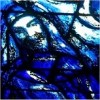
The unexamined life -- especially as a follower of Yeshua -- is not worth living, and the practice of suppressing the truth about our sinful condition can lead to self-deception and even death (1 Cor. 11:30). "If we say we have no sin, we deceive ourselves, and the truth is not in us; if we confess our sins, he is faithful and just to forgive us our sins and to cleanse us from all unrighteousness" (1 John 1:7-8). "Therefore, confess (ἐξομολογέω, lit. 'confess out') your sins to one another and pray (εὔχομαι) for one another, that you may be healed. The prayer of a righteous person (tzaddik) works great power" (James 5:16).
Notice the link between confessing our sins and praying for one another with healing... Being yashar - honest and upright - produces spiritual power and life. The word translated "pray" (euchomai) means to "wish (εὐχὴ) for oneself (or for another) the good." Prayer is always reciprocal, as King David said in Psalm 35:13: "may what I prayed for happen to me!" (literally, tefillati al-cheki tashuv - "may it return upon my own breast").
We are all on a spiritual journey, writing the "Book of our Life." To help us in the "writing" process, we must engage in cheshbon hanefesh (חֶשְׁבּוֹן הַנֶּפֶשׁ) - "making an account of the soul." This means that we engage in honest self-examination about our behavior. We take time to review our lives and ask some hard questions: "How did I get to this place in my life?" "Where am I now?" "Am I where I should be?" We engage in this process of self-examination with an aim let go of the pain of the past and move forward. We find our deliverance by looking to Yeshua:
If you repent of sin without looking to Christ, away with your repentance! If you are so lamenting your sin as to forget the Savior, you have need to begin all this work over again. By no means look at your sin except as you look at Jesus. A man may hate sin just as a murderer hates the gallows – but this does not prove repentance. If I hate sin because of the punishment, I have not repented of sin – I merely regret that God is just. But if I can see sin as an offense against Jesus Christ and loathe myself because I have wounded Him, then I have a true brokenness of heart. Only under the Cross can you repent. Repentance elsewhere is remorse which clings to the sin and only dreads the punishment. Let us then seek, under God, to have a hatred of sin caused by a sight of Christ's love. - C.H. Spurgeon
(Another way to say this is that teshuvah (תְּשׁוּבָה) really means turning back to embrace God's love... Our sin wounds the heart of God, and yet the breach caused by our sin can only be remedied by love's suffering on our behalf, taking up our loss... )
We must begin by asking God for courage and strength... We must let go of the fear that we will discover the truth about who we really are -- about what we've done, what we've thought, about who we've allowed ourselves to become. Confession (ὁμολογία) means bringing yourself naked before the Divine Light to agree with the truth about who you are. Indeed, the word homologeo literally means "saying the same thing" - from ὁμός (same) and λόγος (word). We need to confess the truth if we are to be free from the pain of the past. When King David wrote, "The LORD is my Light and my salvation; whom shall I fear? (Psalm 27:1), he implied that he should even be free of fear of himself and of his past.... We also need to understand our sin in relationship to the wounds of the Savior, since without that connection, our repentance will be vain indeed....
Of course it is a struggle to keep our focus along the way, and there are various tests we all will experience, including the tests of apathy, weariness, confusion, and so on... We must ask the LORD God of Israel to awaken us to His resurrected and all-glorious Presence. His radiance fills the heaven and the earth, and by faith we take hold of hope with wonder, praise, and great joy.... May it please God to help each of us "put on the new self, created after the likeness of God in true righteousness and holiness" (Eph. 4:24). Amen.
 |
New Heart, New Spirit...
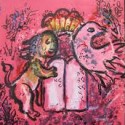
02.14.12 (Shevat 21, 5772) There aren't two gospel messages: one for the sinner and the other for the saint... The message of the gospel is always "good news" to those who are sin-sick and riddled with guilt and shame, and it is always "bad news" for those who deny their inner condition before God and believe that they can justify themselves. In other words, there's no "gospel" message apart from the message of the cross of Yeshua, and the cross represents the end of the ego and its devices. We don't get saved in order to follow the path of self-righteousness; we get saved to be witnesses of God's righteousness... We love God because He first loved us (1 John 4:19).
For those of you who might struggle with pride, anger, and hardness of heart, please take hold of hope. God can turn "stone to flesh" and make you fully alive by His power.
וְנָתַתִּי לָכֶם לֵב חָדָשׁ
וְרוּחַ חֲדָשָׁה אֶתֵּן בְּקִרְבְּכֶם
וַהֲסִרתִי אֶת־לֵב הָאֶבֶן מִבְּשַׂרְכֶם
וְנָתַתִּי לָכֶם לֵב בָּשָׂר
ve·na·ta·ti · la·khem · lev · cha·dash
ve·ru·ach · cha·da·shah · e·ten · be·kir·be·khem
va·cha·si·ro·ti · et · lev · ha·e·ven · mi·be·sar·khem
ve·na·ta·ti · la·khem · lev · ba·sar

"And I will give you a New Heart (לֵב חָדָשׁ),
and a New Spirit (רוּחַ חֲדָשָׁה) I will put within you.
And I will remove the Heart of Stone (לֵב הָאֶבֶן) from your flesh
and give you a Heart of Flesh (לֵב בָּשָׂר)."
(Ezek. 36:26)

The heart (lev) is the inner person, the seat of the emotions, thought, and will. A new heart (lev chadash) represents the transformation of the whole of your inner nature - with the impartation of new appetites, new passions, new desires, etc. (Psalm 51:10). A new spirit (ruach chadashah) implies the renewal of your inner life – the rebirth of your will. This is the "law of the Spirit" (תוֹרַת רוּחַ הַחַיִּים) and the new principle of eternal life (Rom. 8:2).
The "stony heart" (lev ha'even) represents unfeeling, self-serving numbness of being. This heart is the locus of yetzer hara, the inner selfish impulse that is the common heritage of the "natural man." The Targum renders this as, "I will break the heart of the wicked, which is hard as a stone.'' A hard heart has a form of "sclerosis" that makes it closed off and impermeable to love from others, and especially from God. Scripture uses various images to picture this condition, including a "heart of stone" (Ezek. 36:26, Zech. 7:12), an "uncircumcised heart" (Jer. 9:26), a "stiff neck" (Deut. 31:27), and so on. Stubbornness is really a form of idolatry, an exaltation of self-will that refuses to surrender to God.
The heart of flesh (lev basar) represents an inner life of genuine feeling and joy that makes a fit habitation for the radiance of the Divine Presence. After all, the word for "grace" (χάρις) is directly linked to the word for "joy" (χαρά). This heart is soft and tender - a spiritual and sanctified heart - that is submissive to the will of God. It is upon the inner "tablets" of this heart that the Torah of God truly written (Jer. 31:33).
May it please God to give us all soft hearts and renewed spirits that are empowered to love in the truth and to walk before His Presence... May He perform a divine "heart transplant" so that we may feel the heartbeat of the Spirit within us. Amen.
 |
The Month of Adar - חדש אדר

[ Under the full moon of the last month of the Biblical year (called Adar) we celebrate the joyful holiday of Purim and anticipate the coming new year... ]
02.14.12 (Shevat 21, 5772) On the Biblical calendar the month of Adar (אֲדָר) is the last of the year counting from the month of Nisan (though during a leap year it is "duplicated" and called Adar II). Adar is the month of Purim, a festive holiday that celebrates God's victory over the forces of darkness (continuing the theme of Chanukah), which is always observed exactly a month before Passover (Megillah 1:4):
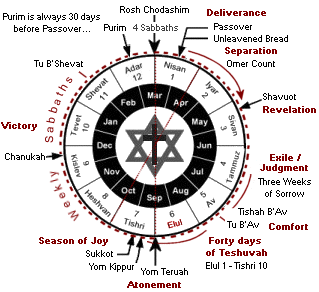 |
Like the month of Elul (i.e., the month that precedes Rosh Hashanah and the New Year in the fall [Exod. 23:16]), Adar is a time to make "New Year's Resolutions" and to turn away from sin before the start of the New Year of spring. The month of Adar is therefore a season given to us each year to begin joyfully preparing for the holiday of Passover....
Since both Purim and Passover celebrate God's deliverance of His people, the month of Adar is considered the happiest month of the Jewish year: "When Adar comes, joy is increased." (Ta'anit 29a). This year the month begins on Wed. Feb. 22nd, and Purim begins two weeks later, under the full moon (i.e., Wed., March 7th). That means that Passover begins one lunar month later, on Friday, April 6th (at sundown).
Rosh Chodesh Blessing
The following (simplified) blessing can be recited to ask the LORD to help you regain or enhance your joy for the coming month of Adar:
יְהִי רָצוֹן מִלְּפָנֵיךָ יהוה אֱלהֵינוּ וֵאלהֵי אֲבוֹתֵינוּ
שֶׁתְּחַדֵּשׁ עָלֵינוּ חדֶשׁ טוֹב בַּאֲדנֵינוּ יֵשׁוּעַ הַמָּשִׁיחַ אָמֵן
ye·hi · ra·tzon · mil·fa·ne·kha · Adonai · E·lo·hei·nu · ve·lo·hei · a·vo·tei·nu
she·te·cha·desh · a·lei·nu · cho·desh · tov · ba'a·do·nei·nu · Ye·shu·a · ha·ma·shi·ach · A·men

"May it be Your will, LORD our God and God of our fathers,
that you renew for us a good month in our Lord Yeshua the Messiah. Amen."

Download Study Card
Parashat Mishpatim

[ The following is related to this week's Torah reading (Mishpatim). Please read the Torah portion to "find your place" here. ]
02.13.12 (Shevat 20, 5772) Last week's Torah portion (Yitro) explained that exactly seven weeks after the Exodus from Egypt (i.e., 49 days after the first Passover), Moses gathered the Israelites at the foot of Mount Sinai to enter into covenant with the LORD. In a dramatic display of thunder, lightning, billowing smoke and fire, the LORD descended upon the mountain and recited the Ten Commandments to the people. Upon hearing the law's categorical requirements, however, the people shrank back in fear and begged Moses to be their mediator before God. The people then stood far off, while Moses alone drew near to the thick darkness to receive the various laws and rules from the LORD.
This week's Torah portion (Mishpatim) begins with Moses in the midst of the "thick darkness" receiving additional instructions regarding civil law for the Israelite people. The Jewish sages traditionally count 53 distinct commandments in this portion of the Torah, making it one of the most "legalistic" (i.e., law-focused) sections of the entire Bible. Civil laws, liability laws, criminal laws, agricultural laws, financial laws, family purity laws, Sabbath laws, and holiday laws are all given in this portion....
These various social and civil laws of ancient Israel are called "mishpatim" (מִשְׁפָּטִים), a plural word that means "rules" or "judgments" which is derived from a root word meaning "to judge" (i.e., shafat, שָׁפַט). The LORD is called the Ha-Shofet kol ha'aretz (הֲשׁפֵט כָּל־הָאָרֶץ) -- the "Judge of all the earth" who loves justice (Gen. 18:25, 37:28, Psalm 50:6, 94:2). We are commanded to pursue righteousness through the exercise of judgment: tzedek, tzedek tirdof (צֶדֶק צֶדֶק תִּרְדּף): "Justice, Justice you shall purse" (Deut. 16:20). God expects us to make wise decisions based on moral truth (Prov. 31:9, John 7:24).
The commentator Rashi noted that this portion of Torah continues the earlier account of the Sinai revelation (i.e., Yitro). The portion begins וְאֵלֶּה הַמִּשְׁפָּטִים אֲשֶׁר תָּשִׂים לִפְנֵיהֶם׃ / v'eleh hamishpatim asher tasim lifneihem: "And these are the rules (mishpatim) that you shall set before them" (Exod. 21:1). Rashi notes that the term v'eleh (וְאֵלֶּה, "and these are...") is always used to add to the preceding text. In other words, the connecting Vav (ו) links what is being said with what went before. The mishpatim, then, were written to elaborate the teaching (תּוֹרָה) given in the Ten Commandments.
Parashat Mishpatim is sometimes called Sefer HaBrit (סֵפֶר הַבְּרִית), "the Book of the Covenant," because it lists various social laws that Moses wrote down (Exod. 24:7). It is therefore a "subset" of the Torah -- a separate scroll -- that elaborated on the terms of the covenant initially made at Mount Sinai (i.e., the giving of the Ten Commandments). After it was written, Moses built an altar at the foot of Mount Sinai with twelve pillars (one for each tribe of Israel), and ordered sacrifices to the LORD to be made. He then took the sacrificial blood from the offerings, threw half upon the altar and read the covenant to the people. The people ratified the covenant with the words: כּל אֲשֶׁר־דִּבֶּר יהוה נַעֲשֶׂה וְנִשְׁמָע / kol asher diber Adonai na'aseh v'nishma ("all that the LORD says we will do and obey" (Exod. 24:7). Upon hearing their ratification, Moses took the other half of the sacrificial blood and threw it on the people saying, "Behold the blood of the covenant (דַּם־הַבְּרִית) that the LORD has made with you in accordance with all these words" (Exod. 24:8).
Note: For more on this subject, see the article, "The Law of Love" based on this week's Torah portion.
 |
Ten Commandments Reader Page

[ The following entry relates to this week's Torah reading (Yitro). Please read the Torah portion to "find your place" here. ]
02.10.12 (Shevat 17, 5772) I created a new "Ten Commandments Reader Page" for those of you who want to practice reciting the commandments in Hebrew. This page provides the Hebrew text of Exodus 20:2-17 with a translation directly underneath. A few explanatory footnotes are also provided. Though it is only a draft version, I hope you will find it helpful, chaverim! You can download the page here.
Personal Update: Shalom chaverim. This ministry is only as strong as the friends who support it in prayer, so I am (again) appealing to you for prayer... There's a good deal of spiritual warfare going on in my life and I really need your help. My health has deteriorated over the last year or so and now I live in chronic pain. Please remember Hebrew for Christians in your prayers, friends... We appreciate you so much.
Shabbat Table Talk for Yitro

[ The following is related to this week's Torah reading (Yitro). Please read the Torah portion to "find your place" here. ]
02.09.12 (Shevat 16, 5772) Though I focused a lot of attention on the Tu B'Shevat holiday this week (and wrote a new article on "the Fruit of the Spirit"), I was able to update the "Table Talk" page for parashat Yitro for this coming Sabbath. Like others on this site, first I include a brief summary of the reading followed by a set of questions and answers. Hopefully this material will prompt some interesting discussion for your Sabbath. You can download the PDF file from the linked page (above) or by directly clicking here.
I would like to express my heartfelt thanks to those of you who have stood by this ministry over the years... Hebrew for Christians exists because of the faithful support of a few dear friends, and I am deeply grateful to the LORD God of Israel for each one of you. Your tzedakah and prayers keep this ministry alive and available for many others. Thank you for believing in the vision and mission of this "lonely" ministry. We wish you true health, joy, and inner peace from our LORD - despite the tribulations that arise in this fleeting world.
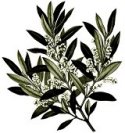 |
Personal Note: I will be taking a few days off from writing to rest and hopefully be strengthened, chaverim. As some of you know I deal with chronic pain issues and I really need the break right now. Your prayer for my healing and recuperation are deeply appreciated... Shalom and thank you so much.
The Unchosen Chosen...
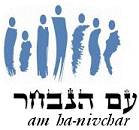
[ The following is related to this week's Torah reading (Yitro). Please read the Torah portion to "find your place" here. ]
02.08.12 (Shevat 15, 5772) There is an old story (midrash) that says that before God offered the Torah to the children of Israel, He first asked the other nations if they wanted it. God did this so that the nations wouldn't be able to claim that they would have accepted the Torah if only they had been asked. God first asked the children of Esau. "What's in the Torah?" they asked. "You shall not murder," God replied. "Well, we could never accept that," they admitted. "Isaac's blessing to Esau said that we would live by our swords (Gen. 27:40), so how could we stop doing that?" And so they refused to accept the Torah. God then went to ask the children of Ishmael. "What's in it?" they asked. "You must not steal," God answered. "Well, we could never accept a Torah like that, since we make our living by stealing," they admitted. So God decided to ask each of the 70 nations whether they would accept the Torah, but each refused it for one reason or another. Finally God came to the Israelites. "Do you want my Torah?" He asked them. "Of course we want the Torah," they replied -- without even asking what was required of them. kol asher diber Adonai na'aseh ("all that the LORD has spoken, we shall do"). So God gave the Torah to the children of Israel...
We might wonder if this midrash wasn't developed to defend against the charge by various anti-Semites that the Jewish people are ethnocentric, elitist, etc. After all, from a strictly "egalitarian" point of view it seems somewhat scandalous to suggest that God would exclusively choose one group of people at the expense of others.... And perhaps this would be offensive if - like aristocrats who live with a sense of inborn entitlement - the "chosen ones" believed they were chosen for the sake of self-aggrandizement....
But of course this is not what Judaism means by "chosenness" at all. Being a Jew means that you are "chosen" to take on additional responsibilities to live in holiness for the glory of God and for the welfare of the world. Therefore a Jew takes the role of being a both a mediator (i.e., "priest") and ambassador for God. The performance of various mitzvot are for the greater purpose of tikkun olam, the "repair of the world." After all, Israel was always meant to be a "light to the nations." God's greater plan was for all the families of the earth to come to know Him and give Him glory. "Jewishness" is therefore not an end in itself but rather a means to bring healing truth to the nations... Indeed, the entire redemptive story of the Scriptures is about the cosmic conflict to deliver humanity from the "curse" by means of the "Seed of the woman" who would come. Any talk of genetics, bloodlines, lineage, and so on are a means to this greater redemptive end....
In fact, a chosen person is not selected on the basis of their genetics or lineage, but solely from the personal call and election of God. "For not all who are descended from Israel belong to Israel, and not all are children of Abraham because they are his offspring, but "through Isaac shall your offspring be named." This means that it is not the children of the flesh who are the children of God, but the children of the promise are counted as offspring" (Rom. 9:6-8). The idea of chosenness therefore is independent of considerations of "flesh" but is directly related to our response to God's promises.... This was true of "Israel at large" in relation to its faithful subset called she'arit Yisrael (i.e., the faithful remnant), just as it is true of those who embrace the promise of salvation through Yeshua the Messiah.
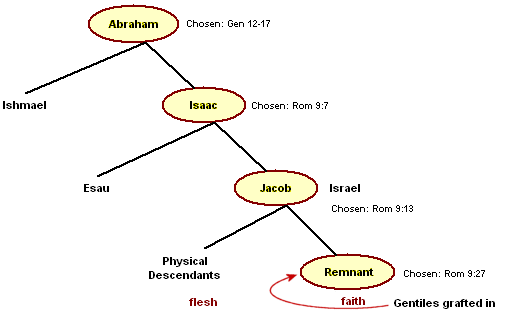
Therefore the Apostle Peter refers to followers of Yeshua as "a chosen race, a royal priesthood, a holy nation, a people for his own possession" (1 Pet. 2:9, cp. Ex. 19:6, Deut. 7:6). This is clearly a reference to both Jews and Gentiles who receive Yeshua as their Savior, since he adds: "Once you were not a people, but now you are God's people" (1 Pet. 2:9-10). The Apostle Paul likewise understands Christians to be "chosen people" (Eph. 1:4; 2 Thess. 2:13). All true Christians are b'kehunat Mashiach - in the priesthood of Messiah Yeshua and therefore have direct access to God. This priestly lineage began with Malki-Tzedek (Melchizedek), culminated in Yeshua, and is passed directly to the believer by means of his or her justification and identification with the Lord, "who gave himself for us, that he might redeem us from all iniquity, and purify unto himself a 'peculiar people' (i.e., am segulah: עַם סְגֻלָּה), zealous of good works" (Titus 2:14).
Within so-called Messianic Judaism, some non-Jewish believers tend to consider themselves as "second-class" members in the family of God. They often tend to be self-deprecatory, calling themselves "wild olive shoots," "Gentile believers," or even "ger tzedek" (a righteous convert). This is most unfortunate, since it robs these precious souls of their true identity as co-heirs of the Kingdom (Gal. 3:9; Titus 3:7), and it also destroys the unity that Yeshua sought to bring among God's people (John 17:20-23; Eph. 2:14-15).
While it's indeed true that ancient Israel was composed of various classes of people (priests, Levites, Israelites, women, converts, slaves, etc.), it's also clear that Yeshua (Jesus) didn't come to create a "caste system" among His followers. In fact, Yeshua turned things upside-down by saying that the "greatest would be the slave of all" (Mark 10:44; Matt. 18:1-4, Matt. 20:25-28). Whoever would be great in the Kingdom must humble himself and walk hatznea lechet - in childlike simplicity before the Lord (Micah 6:8). Yeshua transposed the all-too-human view of social relationships by inverting the "natural" order. Do you "seek great things for thyself"? Then take hold of your absolute nothingness before the LORD and serve your fellow man (Jer. 45:5). Show gratitude for the gift of life and quit your vain conceits.
וְאַתָּה תְּבַקֶּשׁ־לְךָ גְדלוֹת אַל־תְּבַקֵּשׁ
כִּי הִנְנִי מֵבִיא רָעָה עַל־כָּל־בָּשָׂר נְאֻם־יְהוָה
וְנָתַתִּי לְךָ אֶת־נַפְשְׁךָ לְשָׁלָל
עַל כָּל־הַמְּקמוֹת אֲשֶׁר תֵּלֶךְ־שָׁם
ve·at·tah · te·va·kesh · le·kha · ge·do·lot? · al · te·va·kesh
ki · hi·ne·ni · me·vi · ra·ah · al · kol · ba·sar · ne·um · Adonai
ve·na·ta·ti · le·kha · et · naf·she·kha · le·sha·lal
al · kol · ha·me·ko·mot · a·sher · te·lekh · sham

"And do you seek great things for yourself? Seek them not,
for behold, I am bringing disaster upon all flesh, declares the LORD.
But I will give you your life as a prize of war in all places to which you may go"
(Jer. 45:5)
The Apostle Paul - assuredly the greatest Torah sage of the Second Temple period - taught that in the Messiah there "is neither Jew nor Greek, slave nor free, male nor female" since we are all one (echad) in the Messiah (Gal. 3:28). But what does this mean? Despite the egalitarian ideal, don't we use these very distinctions to this day? On a fleshly level we certainly do. After all, we clearly distinguish between men and women, rich and poor, and various ethnic identities. We all live with these distinctions in the world of basar - the carnal world that is known through sensuous apprehension. However, "from now on we regard no one according to the flesh" (2 Cor 5:16) but we aim to understand, with the help of God, that a follower of Yeshua is briah chadashah - a "new creation." Together we are ish-echad chadash ("one new man") designed to live in unity. k'ish echad, b'lev echad - "like a single person with a single heart."
God is said to be no "respecter of persons" (Acts 10:34, Rom. 2:11). He is able to make the unclean clean (Acts 10:28) and to regard those who were once called "Not My People" as "My People" (Hosea 2:23, Matt. 3:9). Indeed, a true Jew is one who is circumcised inwardly, someone who has undergone spiritual brit millah - "covenant of the word" (Deut 10:16, 30:6; Rom. 2:28-29, 1 Cor. 7:19, Gal. 5:6; 6:15; Phil. 3:3, Col. 2:11, etc.). Indeed, Paul insisted that any merit obtained either through his pedigree or his adherence to the moral law code is accounted as less than nothing in comparison to the imputed righteousness given by means of his relationship with Yeshua (Phil. 3:3-8).
So, dear Christian, is it correct to call yourself a "Gentile" believer in Yeshua? Is that an adequate label to describe your identity in Him?
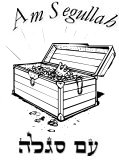
Regardless of your ethnic background, or your gender, or your social status in this world, understand that you are am segulah (עַם סְגֻלָּה) - precious and elect, and part of the family of God. Accept that you are accepted... You are now Kohanim l'El Elyon - priests of the Most High God - "like living stones being built up as a spiritual house, to be a holy priesthood, to offer spiritual sacrifices acceptable to God through Yeshua the Messiah" (1 Pet. 2:5).
The Fruit of the Spirit...
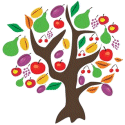
[ The "Rosh Hashanah" for trees is observed on the 15th of Shevat (i.e., Tu B'Shevat), which this year occurs Tuesday, Feb. 7th at sundown, under the full moon... ]
02.07.12 (Shevat 14, 5772) Regarding the middot ha-lev (qualities of heart) that are to mark the follower of Yeshua, the Apostle Paul wrote, "the fruit of the Spirit (פְּרִי הָרוּחַ) is love, joy, peace; long-suffering, generosity, acts of kindness; faithfulness, humility, and modesty – against such there is no Torah" (Gal. 5:22-23). Notice that while there is "one fruit" of the Spirit (i.e., "fruit" [καρπὸς] is singular), the expression of the "inner seed" produces a manifold yield, just as the Tree of Life (עֵץ הַחַיִּים) produces twelve different kinds of fruit, one for each month of the Jewish year (see Rev. 22:1-2).
- "The fruit of the Spirit is love..."
Love (i.e., ahavah: אַהֲבָה)
Of course love is the "first fruit" of the Spirit, and rightly so, since "God is love" (1 John 4:8) and the mark of the follower of Yeshua is likewise be love (John 13:35). The Greek word Paul uses is agape (ἀγάπη), which is one of the most frequently occurring words in his vocabulary of the Christian life. After all, loving God is the primary obligation of life: "Hear, O Israel... love the LORD your God with all your being" (Deut. 6:4-6), and the apostle later states that the practice of love is the fulfillment of the Torah: "For the whole law is fulfilled in one word: "You shall love your neighbor as yourself" (Gal. 5:14). "Owe no one anything, except to love each other, for the one who loves another has fulfilled the law (Rom. 13:8). This is the "kingdom law" (νόμον βασιλικὸν) mentioned in James 2:8. Love is the Source from which all the other virtues flow and is their underlying reason: "I live by faith in God the Son, who loved me and gave Himself for me..." (Gal. 2:20).
"For God so loved the world that He gave..." (John 3:16). God's love is expressed in sacrificial giving, since He is the Source and reason for all that exists. "God, who needs nothing, loves into existence holy superfluous creatures in order that he may love and perfect them" (C.S. Lewis; the Four Loves). Perhaps the best definition of love (ἀγάπη) is found in 1 Corinthians 13, where it is described as longsuffering and kind, full of humility, generosity, forgiveness, and so on. Love always uses the "good eye" (עַיִן טוֹבָה) to resist thinking evil about about others (lit., "does not impute the bad" - οὐ λογίζεται τὸ κακόν, in 1 Cor. 13:5) and rejoices in the truth. Love bears all things, is full of trust and hope for the good... Such is the portrait of Messiah.
Though God's love is the font and source for all the other virtues of grace, it has a practical focus in this list, suggesting that love for God will be manifested as good will and good deeds shown to others (1 John 3:17). Though the love of God has been "poured out" (ἐκκέχυται) into the hearts of believers in Yeshua by the Spirit (Rom. 5:5), love is nevertheless a matter of the will, an act of duty and a divine obligation, rather than mere sentiment or matter of the affections, and therefore we are called to love our enemies in this age, that is, to indiscriminately practice acts of righteousness that will benefit them.
- "The fruit of the Spirit is ... joy"
Joy (i.e., simchah: שִׂמְחָה)
The Greek word for "joy" is chara (χαρὰ), a word related to "grace" (χάρις), which is the expression of thankfulness for being forgiven and accepted by God. "We rejoice in God through Yeshua our Messiah, through whom we have received the atonement," i.e., καταλλαγή, the divine exchange of our guilt with His righteousness (Rom. 5:11). A characteristic mark of the grace of God, then, is an inward sense of joy, regardless of circumstances; a sense of rejoicing - even in the midst of sorrow (2 Cor. 6:10). The experience of joy is related to that of hope (תִקְוָה), since "we rejoice in hope of the glory of God" (Rom. 5:2). "For the kingdom of God (מַלְכוּת הָאֱלהִים) is not a matter of eating and drinking but of righteousness (צְדָקָה) and peace (שָׁלוֹם) and joy (שִׂמְחָה) in the Holy Spirit" (Rom. 14:17).
- "The fruit of the Spirit is ... peace"
Peace (i.e., shalom: שָׁלוֹם)
Peace and joy are regarded as complimentary graces, "since we are justified by faith, we have peace with God through Yeshua our Messiah" (Rom. 5:1), and those who are reconciled to God have the greatest reason to rejoice (Rom. 5:11). The Greek word for "peace" is erene (εἰρήνη), though the Hebrew word "shalom" means more than the absence of strife, but also includes the idea of wholeness, health, balance, reconciliation, etc. In addition to the idea of having peace with God (ἡ εἰρήνη πρὸς τὸν θεὸν), shalom implies the peace of God (ἡ εἰρήνη τοῦ θεοῦ), which passes all understanding (Phil. 4:7). The LORD Himself is called the "God of Peace" (אלהֵי הַשָּׁלוֹם) who crushes satan under your feet (Rom. 16:20).

Ultimately the first three qualities of heart come from Yeshua, who calls his followers to abide in His love (John 15:9) so they can know His joy (John 15:11) and experience His inner peace (John 14:27).
- "The fruit of the Spirit is ... long-suffering"
Long-suffering (i.e., erekh apayim: ארֶךְ אַפַּיִם)
The Apostle Paul uses the word makrothumia (μακροθυμία), which comes from "macros" (μακρός), "great," and "thuo" (θύω), "sacrifice," a word that suggests patient endurance of wrongdoing without taking vengeance, or, put positively, steadfastness and tenacity of purpose. The corresponding Hebrew phrase means "long of nose" (the word erekh means "long" and af (אַף) means "nose"), an idiom used to picture the slow venting of air through the nostrils which is characteristic of someone who is slow to anger. The idea implies that we are not easily offended by the faults and character defects of others, just as God graciously overlooks our sins in Yeshua... Since long-suffering is an attribute of God's Mercy (Exod. 34:6-7), it is a part of His essential character, and therefore Paul later writes that "love is longsuffering" (ἡ ἀγάπη μακροθυμεῖ) in 1 Cor. 13:4.
- "The fruit of the Spirit is ... generosity"
Generosity (i.e., nedivut: נְדִיבוּת)
The Greek word Paul used here is krestotes (χρηστότης), which refers to the disposition of kindness toward others. In the Greek Old Testament, krestotes is used to translate the Hebrew word for tov (טוֹב), i.e., "good" (e.g., Psalm 34:8; 136:1, Nah. 1:7), as well as yashar (יָשָׁר), i.e., "upright" (Prov. 2:21). In the New Testament, krestotes is used to convey kindness that results from tenderheartedness and compassion, and therefore is associated with a generous disposition (Eph. 4:32). The Hebrew nedivut means "generosity" or "benevolence," and nedivut lev means having a generous heart (a nedavah is a "free-will" offering or donation from the heart).
- "The fruit of the Spirit is ... goodness"
Goodness (i.e., gemilut chasadim: גְּמִילוּת חֲסָדִים)
The Greek word is agathosune (ἀγαθωσύνη), a word that occurs only four times in the New Testament, though it undoubtedly it refers to acts of kindness that are esteemed as "good" (טוּב) in the eyes of God. Therefore Yeshua asked, "Is your eye evil because I am good?" (ὁ ὀφθαλμός σου πονηρός ἐστιν ὅτι ἐγὼ ἀγαθός εἰμι), which associates the good eye (ayin tovah) with a generous spirit (Matt. 20:15). In the Hebraic mindset, the outworking of the "good eye" is expressed as gemilut chasadim, "the bestowal of kindnesses" or the practice of love (i.e., chesed: חֶסֶד). Such benevolence is regarded as greater than tzedakah (doing the right thing out of a sense of duty) because love anticipates the needs of others and acts from a sense of compassion. As an old Jewish proverb states: "Tzedakah awaits the cry of distress; benevolence anticipates the cry of distress."
- "The fruit of the Spirit is ... faithfulness"
Faithfulness (i.e., ne'emunut: נֶאֱמָנוּת)
The Greek word pistis (πίστις) can refer either to the attitude of believing (i.e., trust), the content of belief (i.e., "the faith" in the sense of doctrine), or to the trustworthiness or integrity of a person (as in a "faithful friend," "a faithful spouse," etc.). Since the list of fruits here refer to ethical qualities, it is likely that Paul had in mind faithfulness that is associated with truth ("emet"), that is, reliability, trustworthiness, dependability, etc. Since God is faithful (i.e., can be trusted or depended upon), God's people are to be faithful, too, and the Holy Spirit enables them to be this way... The Hebrew word bittachon (בִּטָּחוֹן) is sometimes used to describe this dimension of faith, which comes from a root word (בָּטָח) that means to trust, to feel safe and secure. The Holy Spirit enables the heart to be a safe source of counsel and strength for others.
- "The fruit of the Spirit is ... humility"
Humility (i.e., anavah: עֲנָוָה)
The Hebrew word anavah implies a sense of inner poverty that can only be healed by giving and serving others. "Blessed are the poor in spirit." Therefore Moses was described as עָנָיו מְאד מִכּל הָאָדָם, "very humble, more than all men" (Num. 12:3). The translators of the Torah into ancient Greek chose the word praotes (πρᾳότης) to describe Moses' humility (or "meekness"), a word that suggests moderation, gentleness, and even the inability to get angry. Likewise Yeshua described Himself as someone "gentle and lowly in heart" (πραΰς εἰμι καὶ ταπεινὸς τῇ καρδία) who offered rest for the burdened soul (Matt. 11:29). The Greek word therefore indicates "moderation" and courtesy by esteeming others as worthy of honor. Humility in this sense means being "teachable" and open-minded toward others. The humble or "meek" soul has the courage to ask the LORD, "Search me, and know my ways; test me, and know my thoughts; and see the wicked ways in me – and lead me in the way everlasting" (Psalm 139:23-24). Humility is not a "weakness," since on the contrary, it is a sign of spiritual weakness to be proud and self-serving...
In Pirke Avot, the sages rhetorically ask, "Who then is wise?" and answer "the one who learns from every man." In the Jewish tradition, humility is among the greatest of the virtues, as its opposite, pride (i.e., ga'avah: גַּאֲוָה), is among the worst of the vices. Indeed God literally hates the eyes of the proud countenance (Prov. 6:16-17). Therefore Moses is described as the most humble of men: "Now the man Moses was very humble, above all the men that were on the face of the earth" (Num. 12:3), and likewise the great patriarch Abraham confessed to God: "Behold now, I have taken upon me to speak unto the Lord, who am but dust and ashes (עָפָר וָאֵפֶר)" (Gen 18:27).
- "The fruit of the Spirit is ... modesty"
Modesty (i.e., tzeniut: צְנִיעוּת)
This word is often translated as "self control," especially in reference to sexual affections or desires (i.e., "chastity"). The Greek word engkratea (ἐγκράτεια) literally means "inner strength" (from εν-, "in" + κράτος, "strength" or "power") referring to mastery over one's desires and passions. However, since the strength to turn away from evil to serve God comes from the indwelling Divine Presence of the Spirit, it is clear that this word ultimately refers to the life of Yeshua within the heart, providing strength to serve and please God. "I can do all things through the Messiah who strengthens me" (Phil. 4:13; Eph. 3:16). Perhaps this is why this virtue is given last in the list, as a sort of summation of the other virtues. Just as the love of God is the Source of all grace, so the life of God is its End...
Against these great graces of the Spirit-controlled life the law has "nothing to say," since the law (understood in its civil and judicial sense as "mishpatim") was intended to restrain and to punish evil behavior (i.e., the "works of the flesh"). As Paul wrote elsewhere, "the law is not laid down for the just but for the lawless and disobedient, for the ungodly and sinners, for the unholy and profane, for those who strike their fathers and mothers, for murderers, the sexually immoral, men who practice homosexuality, enslavers, liars, perjurers, and whatever else is contrary to sound doctrine, in accordance with the gospel of the glory of the blessed God with which I have been entrusted" (1 Tim. 1:9-11). In other words, Paul's use of the phrase, κατὰ τῶν τοιούτων οὐκ ἔστιν νόμος, "against such there is no law," is meant for rhetorical effect, since no valid law of God may circumvent the greater end of the law, which is the outworking of God's love for people. The qualities manifested by the Holy Spirit are of a different order of reality altogether: they are of the sphere of Divine Grace and Invitation, not the sphere of the judgment and law.... In other words, we no longer relate to God in terms of an external lawcode, but rather by an internal identity as God's beloved child. Just as the fruit of a natural vine comes from the vine's own life, so the qualities of the spiritual vine comes from the life of God. As Yeshua said, "Without me you can do nothing..." (John 15:5).
The apostle wrote, "For I through the law to the law have died; that to God I will live (᾽Εγὼ γὰρ διὰ νόμου νόμῳ ἀπέθανον, ἵνα θεῷ ζήσω): I have been crucified with the Messiah: It is no longer I who live, but Messiah who lives in me. And the life I now live in the flesh I live by faith in the Son of God, who loved me and gave himself for me. I do not nullify the grace of God, for if righteousness came through the law, then the Messiah died for no purpose" (Gal. 2:19-21). The "deepest root of the Torah" goes back to the Tree of Life whose branches extend to the very world to come... Yeshua is our Tree of Life, just as He is forever our Living Torah.
אָמֵן אָמֵן אֲנִי אוֹמֵר לָכֶם
אִם לא יָמוּת גַּרְגִּיר הַחִטָּה
הַנּוֹפֵל לְתוֹךְ הָאֲדָמָה
חָזָה יִשָּׁאֵר לְבַדּוֹ
אֲבָל אִם יָמוּת יַעֲשֶׂה הַרְבֵּה טְּבוּעַ
הָאוֹהֵב אֶת־נַפְשׁוֹ מְאַבֵּד אוֹתָהּ
וְהַשׂוֹנֵא אֶת נַפְשׁוֹ בָּעוֹלָם הַזֶּה
יִשְׁמְרֶנָּה לְחַיֵּי עוֹלָם
amen · amen · ani · omer · la·khem
im · lo · ya·mut · gar·gir · ha·chi·tah
ha·no·fel · le·tokh · ha·a·da·mah
cha·zah · yish·a·er · le·va·do
a·val · im · ya·mut · ya·a·seh · har·beh · te·vu·a
ha·o·hev · et · naf·sho · me·a·bed · o·tah
ve·ha·so·nei · et · naf·sho · ba·o·lam · ha·zeh
yish·me·re·nah · le·cha·yei · o·lam

"Truly, truly, I say to you,
unless a grain of wheat falls into the earth and dies,
it remains alone; but if it dies, it bears much fruit.
Whoever loves his life is destroying it,
but whoever hates his life in this world will keep it for eternal life."
(John 12:24-25)

ἀμὴν ἀμὴν λέγω ὑμῖν,
ἐὰν μὴ ὁ κόκκος τοῦ σίτου πεσὼν εἰς τὴν γῆν ἀποθάνῃ,
αὐτὸς μόνος μένει· ἐὰν δὲ ἀποθάνῃ, πολὺν καρπὸν φέρει.
ὁ φιλῶν τὴν ψυχὴν αὐτοῦ ἀπολλύει αὐτήν,
καὶ ὁ μισῶν τὴν ψυχὴν αὐτοῦ ἐν τῷ κόσμῳ τούτῳ
εἰς ζωὴν αἰώνιον φυλάξει αὐτήν.
"If there is no seed, there is no fruit;" and the type of seed always determines the type of fruit (1 Pet. 1:23; 1 John 3:9). We can sow to the flesh – and reap corruption - or we can sow to the Spirit - and reap life everlasting (Gal. 6:7-8). The formation of "Messiah-like character" is the result of discipline (παιδεία), a word that means to instruct or rear a child (παιδεύω) and is therefore connected with discipleship and education. Indeed, the Hebrew word for "discipline" is musar (מוּסָר), a term that refers to moral instruction and guidance, whereas the word for "education" is chinukh (חִנּוּךְ), a term that shares the same root as the word "dedication" (i.e., chanukah: חֲנֻכָּה). Unlike the Greek view that regards education as a pragmatic process of improving one's personal power or happiness, the Hebrew idea implies dedication/direction to God and His concrete purposes on the earth. Disciples of Yeshua are therefore called talmidim (תַּלְמִידִים), a word that comes from lamad (לָמַד) meaning "to learn" (the Hebrew word for teacher is melamad (מְלַמֵּד), a word that shares the same root). There can be no discipline apart from education..
The "heart of Scripture" is revealed the Book of Psalms, and the Psalms begin with the declaration that the one who delights in God's Torah (תּוֹרָה) and meditates upon it "day and night" will be blessed with a genuinely fruitful life:
וְהָיָה כְּעֵץ שָׁתוּל עַל־פַּלְגֵי מָיִם
אֲשֶׁר פִּרְיוֹ יִתֵּן בְּעִתּוֹ
וְעָלֵהוּ לא־יִבּוֹל
וְכל אֲשֶׁר־יַעֲשֶׂה יַצְלִיחַ
ve·ha·yah · ke·etz · sha·tul · al · pal·gei · ma·yim
a·sher · pi·re·yo · yit·ten · be·i·to
ve·a·lei·hu · lo · yib·bol
ve·khol · a·sher · ya·a·seh · yatz·li·ach

"He is like a tree transplanted by streams of water
that yields its fruit in its season,
and its leaf does not wither.
In all that he does, he prospers."
(Psalm 1:3)

In the New Testament we read, "For the moment all discipline (παιδεία) does not seem full of joy but of sorrow, but afterwards it yields the peaceful fruit of righteousness to those who have been exercised by it" (Heb. 12:11). The Greek word used for "exercised" is gumnadzo (γυμνάζω), often used to refer to training for competitive gymnastic events. Despite the analogy of training or "exercising" the physical body to comply with the directives of the spirit, however, it is important to remember that the life of God is a miracle that comes from God's own source of Life. It is the fruit of the Spirit, after all, and not the result of human effort or moral reformation. See John 15:1-8. Our lives are sanctified in the manner in which they were initially justified: wholly by faith in the love and grace of God... Just as we are unable to "crucify ourselves," so we are unable to produce fruit for God in ourselves. As Yeshua said, "Without me you can do nothing..."
The tough question we need to ask ourselves is whether our lives indeed give evidence to the power and agency of the Holy Spirit. Strictly speaking, these nine virtues are qualities that only God Himself possesses, since He alone is perfectly loving, perfectly joyful, and so on. But since we are created betzelem Elohim (in the image of God) and were given the Holy Spirit to help us resemble our Teacher (Luke 6:40), spiritual fruit should be seen in our own lives (John 14:12; 15:1-8; 26-7). The outgrowth of such fruit is invariably a matter of faith - trusting that God will help us live our lives in truthful union with Him. If our lives are devoid of fruit, perhaps we are devoid of faith, and therefore the first step is to return to the LORD for healing and life...
Nonetheless, fruit does not immediately crop up but requires time and its own season... The process of spiritual growth is ultimately mysterious and divine: "The Kingdom of God is like someone who spreads seed on the ground. He goes to sleep and gets up, night and day, and the seed sprouts and grows, though he does not know how. By itself (αὐτομάτη, "automatically") the soil produces a crop, first the stalk, then the head, then the full grain in the head. And when the grain is ripe, he comes in with his sickle because the harvest has come" (Mark 4:26-29).
In the list of the fruit of the Spirit, it is important to see what is not listed.... What is not listed are powerful signs, wonders, or the trappings of worldly success or power. Though spiritual impostors may simulate the exercise of spiritual gifts, they can never "fake" the fruit of the Holy Spirit.... Yeshua did not say that you shall know them by their "flash," but rather "you will know them by their fruits" (Matt. 7:16-20).
The Scriptures state twice: שׁרֶשׁ לְמָטָּה וְעָשָׂה פְרִי לְמָעְלָה / "Take root downward and bear fruit upward" (2 Kings 19:30; Isa. 37:31). As Yeshua said, "unless a grain of wheat falls to the ground and dies, it abides alone; but if it dies, it produces a big harvest (John 12:24). We pray we might surrender ourselves to the Lord fully, being immersed in His passion, "bearing fruit in every good work (ἐν παντὶ ἔργῳ ἀγαθῷ καρποφοροῦντες) and growing in da'at HaShem (דַעַת אֱלהִים) - the knowledge of God" (Col. 1:10). The "fruit of the righteous is a Tree of Life" lit., etz chayim (עֵץ חַיִּים), "the Tree of lives" (Prov. 11:30). It is the fruit of Yeshua, the Righteous One, who bears fruits of healing for the lives of those who turn to Him in trust...
"I can do all things through the Messiah who strengthens me," not "some things," or a "few things," but ALL things (Phil. 4:13). Yeshua is the Tree of Life, the Source of all our strength. "May you to be strengthened with power through his Spirit in your inner being" (Eph. 3:16). Let's remember to pray for one another and ask the LORD to help make each of us fruitful to the glory of our Heavenly Father (John 15:8).
 |
Tu B'Shevat - טו בשבט
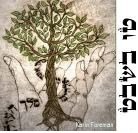
[ The "Rosh Hashanah" for trees is observed on the 15th of Shevat (i.e., Tu B'Shevat), which this year occurs Tuesday, Feb. 7th at sundown... ]
02.06.12 (Shevat 13, 5772) The 15th day of the Hebrew month of Shevat (i.e., Tu B'Shevat) is traditionally regarded as the time when spring begins in Israel. The rainy and cold season ends when the blossoms of almond trees first begin to appear. Indeed some scholars have said that originally Tu B'Shevat was a "folk festival" to welcome the re-emergence of spring. During the time of the Temple, Tu B'Shevat was selected as the date when Temple taxes were assessed from Jewish farmers (i.e., ma'aser). The sages reasoned that by this time the trees had begun to soak up the winter rains, causing their sap to rise, and therefore Tu B'Shevat marked the start of their growing season. In this way Tu B'Shevat became known as "Rosh Hashanah Le'ilanot," the New Year for Trees.
After the Second Temple was destroyed, the sages of the Diaspora continued to celebrate Tu B'Shevat by eating various fruits and nuts that were grown in the Promised Land. In synagogue services it became customary to partake of the seven types of grains and fruits listed in the Torah (i.e., wheat, barley, grapes, figs, pomegranates, olives, and dates) while reciting the prescribed Hebrew blessings. Almonds were eaten to recall the bloom of the almond tree. Carob also became associated with Tu B'Shevat because it was commonly eaten while traveling to Jerusalem during the days of the Temple (carob is an ideal traveling food since it does not spoil). In the sixteenth century, however, the mystics of Safed "reinvented" Tu B'Shevat to represent a time to "repair" the original sin of eating from the Tree of the Knowledge of Good and Evil in the Garden of Eden. These mystics developed an esoteric "seder" that focused on the "Tree of Life," which they understood to mean the spiritual powers that impart divine energy to the physical world (called sefirot, or divine attributes). Reciting blessings over various kinds of fruits and eating them was thought to release "divine sparks" hidden within the seeds, thus restoring the balance of the soul. Today this mystical approach is very popular in mainstream in Judaism (for more on this subject, see the Kabbalah pages).
In 1948 the Zionist dream of an independent State of Israel miraculously came to pass, and one of the first things the settlers did when they came back to their land was to plant trees and develop moshavim (collective farms). Reforesting the land by planting trees during Tu B'Shevat eventually became national custom. Today Israeli schoolchildren plant trees in special ceremonies (neti'at Etzim), and people living in the Diaspora often donate money to plant trees in Israel through the services of the Jewish National Fund. Tu B'Shevat therefore resembles an "Israeli Arbor Day" when trees are planted and the rebirth of the Jewish homeland is celebrated. It is customary to eat "first fruits" from the Land of Israel on this date, to recite various Hebrew blessings, and to discuss Jewish values such as tikkun olam ("repairing the world"), tza'ar ba'alei chayim (alleviating "the suffering of living creatures"), ahavat Yisrael ("love of Israel"), bal taschit ("do not destroy"), and so on.

Though Tu B'Shevat is not explicitly mentioned in the Torah as a holiday, the Scriptures clearly teach that God is the Creator of all life - including vegetative life (Gen. 1:11-13). God created the "seed bearing plants and fruit trees of every kind... and God saw that it was good." And God said [to Adam], "Behold, I have given you every plant yielding seed that is on the face of all the earth, and every tree with seed in its fruit. You shall have them for food" (Gen. 1:29). The warning to care for creation is found in various midrashim:
The Holy One led Adam through the Garden of Eden and said, "I created all my beautiful and glorious works for your sake. Take heed not to corrupt and destroy My world. For if you destroy it, there is no one to make it right after you." (Ecclesiastes Rabbah 7:13)
The Scriptures explicitly state various laws regarding the use of trees. In other words, there is a "Torah of Trees." For example, "When you enter the land and plant any tree for food, you shall regard its fruit as "uncircumcised" (i.e., orlah: עָרְלָה) for three years; in the fourth year all its fruit shall be holy, an offering of praise to the LORD; only in the fifth year may you use its fruit, to increase its yield for you: I am the LORD your God" (Lev. 19:23-25; 26:3-4). The Torah also clearly forbids the destruction of fruit trees during times of warfare: "When you besiege a city for a long time, making war against it in order to take it, you shall not destroy its trees by wielding an axe against them. You may eat from them, but you shall not cut them down. Are the trees in the field human, that they should be besieged by you?" (Deut. 20:19-20). Clearly God cares for trees. The psalmist describes the trees of the forest as singing for joy (Psalm 96:12), just as the prophet Isaiah foretold the day when the trees of the field shall "clap their hands" in praise to the LORD God of Israel (Isa. 55:12).
It was an old Jewish custom to plant a cedar tree when a boy was born and a pine tree when a girl was born. When two people were married, branches from these trees were used to make poles for their wedding canopy.... (The custom of planting of a "marriage tree" at the birth of a child is called neti'ah shel simchah, "a joyous planting.") On a spiritual level, this pictures being "grafted in" and made part of the marriage canopy of Yeshua, etc.
Torah alludes that human life is like "the tree of the field," i.e., כִּי הָאָדָם עֵץ הַשָּׂדֶה, Deut. 20:19), and many people therefore observe Tu B'Shevat as time to assess man's place within creation as well. Since God created the world for a habitation (Isa. 45:18), some have pictured the world itself as a "great tree" with human beings as its fruit. Yeshua often used such agricultural images in his parables. For example, he explained that people are known by the "fruits" of their lives (Matt. 7:16-20). He likened the spread of his message in terms of "sowing and reaping" (Matt. 13:3-23) and compared the Kingdom of Heaven to the secret working of a mustard seed (Matt. 13:31-32). Yeshua regarded the world as a "field" for planting with different "types of soil" (Matt. 13:38-43), and warned of the "great harvest" of souls at the end of the age (Luke 10:2; Matt. 13:30). He pointed to signs from a fig tree to indicate the nearness of the prophesied End of Days (Matt. 24:32-33). Yeshua also used the metaphor of a "vine and its branches" to explain how his followers are to be connected to Him (John 15:1-6).
During the night of Tu B'Shevat, Orthodox Jews read Pri Etz Hadar (literally "Fruit of Goodly Trees"), a booklet that contains selections from Torah, Mishnah, Gemarah, and Zohar regarding trees, fruit, fruitfulness, and so on. King Solomon declared: "The fruit of the righteous is a tree of life, and whoever captures souls is wise" (Prov. 11:30). The one who delights in the Torah (תּוֹרָה) and meditates upon it daily is likened to a tree planted by streams of water that yields fruit in its season. All that he does shall prosper (Psalm 1:1-3). The wisdom of Torah (chochmat haTorah) is metaphorically called etz chaim, a "Tree of Life." As the Torah service ends at the synagogue, it is customary to sing, "It is a tree of life to those who take hold of it, and whoever grasps it close will be made happy" (Prov. 3:18). Just as the root system of a tree is a source of sustenance for its fruit, so the Torah is the root source of wisdom for the Jew.
עֵץ־חַיִּים הִיא לַמַּחֲזִיקִים בָּהּ
וְתמְכֶיהָ מְאֻשָּׁר
etz · cha·yim · hi · la·ma·cha·zi·kim · bah,
ve·tom·khe·ha · me·u·shar

"It is a tree of life to those who take hold of it,
whoever grasps it close will be made happy." (Prov. 3:18)

Download Study Card
The Bible begins and ends with the Tree of Life (עֵץ חַיִּים) -- first in the orchard of Eden, and then in the midst of the paradise of heaven. "The Tree of Life (etz ha-chayim) was in the midst of the garden.." (Gen. 2:9). "Then the angel showed me the river of the water of life, bright as crystal, flowing from the throne of God and of the Lamb through the middle of the street of the city; also, on either side of the river, the Tree of Life (etz ha-chayim) with its twelve kinds of fruit, yielding its fruit each month...." (Rev. 22:1-2).
Notice that the "twelve fruits" (καρποὺς δώδεκα) from the Tree of Life are directly linked to the "twelve months" of the Jewish year (κατὰ μῆνα ἕκαστον ἀποδιδοῦν τὸν καρπὸν αὐτοῦ: "each month rendering its fruit"). Twelve months; twelve fruits.... The sequence of the holidays (moedim) were always intended to teach us great revelation about God. That is why God created the Sun and the Moon for signs and for "appointed times" (Gen. 1:14). As it is also written: "He made the moon to mark the appointed times (לְמוֹעֲדִים); the sun knows its time for setting" (Psalm 104:19). Note further that the Majority Text of Revelation 22:14 reads: "Blessed are those who do His commandments (Μακάριοι οἱ ποιοῦντες τὰς ἐντολὰς αὐτοῦ) so that they may have access the Tree of Life..." Faith and obedience are two sides of the same coin.
 |
The great command is to "Choose life!" in everything we do. If we live in faith, resurrection life will triumph in us through the Messiah. We will become agents of hope and healing to a dark and lost world... And when our redemption is finally complete, even the trees of the field will clap their hands in joy (Isa. 55:12)! May that day be soon, chaverim....
Tu B'Shevat Blessing:
יְהִי רָצוֹן מִלְּפָנֶיךָ יהוה אֱלהֵינוּ וֵאלהֵי אֲבוֹתֵינוּ
שֶׁתְּחַדֵּשׁ עָלֵינוּ טוֹב וּפוֹרֶה שָּׁנָה
בַּאֲדנֵינוּ יֵשׁוּעַ הַמָּשִׁיחַ, אָמֵן
ye·hi · ra·tzon · mil·fa·ne·kha · Adonai · E·lo·hei·nu · ve·lo·hei · a·vo·tei·nu
she·te·cha·desh · a·lei·nu · tov · u·fo·reh · sha·nah,
ba'a·do·nei·nu · Ye·shu·a · ha·ma·shi·ach, · a·men

"May it be Your will, LORD our God and God of our fathers,
that you renew for us a good and fruitful year
in our Lord Yeshua the Messiah. Amen."

Download Study Card
The Scriptures state twice: שׁרֶשׁ לְמָטָּה וְעָשָׂה פְרִי לְמָעְלָה / "Take root downward and bear fruit upward" (2 Kings 19:30; Isa. 37:21). As Yeshua said, "unless a grain of wheat falls to the ground and dies, it abides alone; but if it dies, it produces a big harvest (John 12:24). We pray we might surrender ourselves to the Lord fully, being immersed in His passion, "bearing fruit in every good work (ἐν παντὶ ἔργῳ ἀγαθῷ καρποφοροῦντες) and growing in da'at HaShem (דַעַת אֱלהִים) - the knowledge of God" (Col. 1:10). "May it be Your will, LORD our God and God of our fathers, that you renew for us a good and fruitful year in our Lord Yeshua the Messiah." Amen.
Note: If you would like to celebrate Tu B'Shevat with your friends or family, I've created a simplified (and non-Kabbalistic) Tu B'Shevat Seder Guide that will give you some idea about how to perform your own home ceremony. I hope you will find it helpful, chaverim. Blessings to you in Yeshua, our Tree of Life!
Parashat Yitro - יתרו

[ The following is related to this week's Torah reading (Yitro). Please read the Torah portion to "find your place" here. ]
02.05.12 (Shevat 12, 5772) Recall that Midian (מִדְיָן) was a son of Abraham and Keturah (Gen. 25:1-6), and therefore the Midianites were cousins of the children of Jacob (i.e., the Israelites). Apparently the Midianites first settled east of the Jordan River (Gen. 25:6) though later they lived as nomadic shepherds in the Sinai Peninsula. It was a group of Midianite traders, you will remember, who "lifted Joseph from the pit" (Gen. 37:28) and sold him to the Ishmaelites (who in turn sold Joseph to Potiphar in Egypt).
Centuries later, Moses had fled to the "land of Midian" to escape Pharaoh's wrath (perhaps using the very same route he would later lead Israel during the Exodus). There he rescued the daughters of a man named Reuel (רְעוּאֵל, lit. a "friend [רֵעַ] of God"), who was also named Yitro (יִתְרו), the "priest of Midian" (Exod. 2:15-19; 3:1). Moses married Yitro's daughter Zipporah, had two sons, and spent forty years in Midian working for his father-in-law as a shepherd. It was in Midian that God appeared to Moses in the burning bush, and it was in Midian that God later revealed the Torah to Israel at Mount Sinai.
According to Jewish tradition, Moses' father-in-law was a pagan priest who "fattened calves for idolatry" (Sotah 43a). The midrash says he was a universalist who worshipped all the gods: "There was a not a god in the world that he [Jethro] did not worship" (Midrash Mechilta Yitro 1:1; cp. Exod. 18:11). It is unclear if Yitro knew of Moses' encounter with the burning bush at Sinai, but he wished him well as he left Midian to return to Egypt (Exod. 4:18-20). After the Exodus of Israel, however, Yitro later met up with Moses at Rephidim (Exod. 18:1-6). There he saw how the God of Israel had rescued the Jewish people and listened as Moses explained how the LORD had delivered them (Exod. 18:7-9). Then Jethro said, "Blessed be the LORD (בָּרוּךְ יְהוָה), who has delivered you out of the hand of the Egyptians and out of the hand of Pharaoh and has delivered the people from under the hand of the Egyptians. Now I know that the LORD is greater than all gods (עַתָּה יָדַעְתִּי כִּי־גָדוֹל יְהוָה מִכָּל־הָאֱלהִים)..." And Jethro brought a burnt offering and sacrifices to God; and Aaron came with all the elders of Israel to eat bread with Moses' father-in-law before God (Exod. 18:10-12). According to the sages, this event marked the moment of Yitro's teshuvah and conversion to the LORD God of Israel (יְהוָה אֱלהֵי יִשְׂרָאֵל).
After this, Yitro observed how Moses sat every day to judge the people "from morning to evening" (Exod. 18:13) and expressed concern that his son-in-law was taking on too much responsibility: "You and the people with you will certainly wear yourselves out, for the thing is too heavy for you. You are not able to do it alone." Yitro then prophetically advised Moses as follows:
You shall represent the people before God (אַתָּה לָעָם מוּל הָאֱלהִים) and bring their words to God, and you shall teach them about the statutes (הַחֻקִּים) and the laws (הַתּוֹרת), and make them know the way in which they must walk (הֲלָכָה) and what they must do. Moreover, look for able men from all the people, men who fear God, who are trustworthy and hate a bribe, and place such men over the people as chiefs (שָׂרִים) of thousands, of hundreds, of fifties, and of tens. And let them judge the people at all times. Every great matter they shall bring to you, but any small matter they shall decide themselves. So it will be easier for you, and they will bear the burden with you. If you do this, God will direct you, you will be able to endure, and all this people also will go to their place in peace" (Exod. 18:19-23)
Yitro wisely advised Moses to establish a hierarchy of judges (shoftim) to help bear the burden of governing the Israelites, thereby freeing Moses to be a more effective intercessor before the LORD. According to Midrash, Yitro's original name was Yeter (i.e., יֶתֶר, "remainder") but was changed to Yitro (i.e., יִתְרו, "His abundance") in honor of his wisdom and to indicate that he became a "convert" to the Jewish faith. Jewish tradition says that Yitro's descendants all became leaders in the Great Sanhedrin (i.e., the 71 member supreme court of ancient Israel). Later Yitro was called a "Kenite" (zealot) because his descendants were all zealous of the Torah (Judges 1:16).
After Yitro converted, he returned to his homeland where he attempted to convert the Midianites to the true faith (Exod. 18:27). He was unsuccessful, however, and later the Midianites became allied with the Moabites against the Jewish people (see parashat Balak). God finally directed Moses to destroy the Midianites (Num. 31:1), though he was unable to completely do so (Judges 6:1). (Note that Yitro's son Chovav later joined the Israelites and his descendants became incorporated into the tribe of Judah [Num. 10:30-32]).
After Moses restructured the politics of the camp according to the wisdom of Yitro, the great revelation of Sinai was given, including the awesome account of the giving of the Ten Commandments, the Ten "Words" or "Utterances" that were later inscribed on two tablets of stone (luchot) by the finger of God (Exod. 31:18; 32:15). For more information about the Ten Commandments, click the image below:

It is interesting to note that the earliest Jewish sages (i.e., pre-Mishnah interpreters) said that the Ten Commandments were not written five on one tablet and five on the other, but rather were written with all ten commandments written on both of the tablets. In other words, the Ten Commandments were given in duplicate form, and both tablets (i.e., copies of the contract) were deposited in the Holy Ark (and later at the Temple) to represent the terms of the agreement for both parties. This is similar to other ancient Near East treaties where one copy was given to the king and the other copy was given to the vassal.
Shabbat Table Talk - Beshalach

[ The following entry is related to this week's Torah reading (Beshalach). Please read the Torah portion to "find your place" here.]
02.03.12 (Shevat 10, 5772) It is a time-honored custom to discuss the weekly Torah portion with your family and friends during the Sabbath. To help make this a bit easier, I have written a new "Table Talk" for Beshalach which includes a brief summary of the reading followed by a set of over 70 questions (with answers) and some discussion topics. Hopefully this material will help you savor the Torah of our LORD and give you new insight into the teaching of Yeshua our Messiah... You can download the PDF file from the linked page (above) or by directly clicking here:
Did you know that a verse from our Torah portion this week (Exod. 16:16) contains all the letters of the Hebrew alphabet (i.e., אבגדהוזחטיכלמנסעפצקרשׁת)? The verse reads, "This is what the LORD has commanded: 'Gather of it, each one of you, as much as he can eat. You shall each take an omer (עמֶר), according to the number of the persons that each of you has in his tent.'" This implies that if we immerse ourselves in the Scriptures, "from Aleph (א) to Tav (ת), God will surely provide us with the "daily bread" (לֶחֶם חֻקֵּנוּ) we need, just as He did when the bread from heaven (לֶחֶם מִן־הַשָּׁמָיִם) was miraculously given to feed the Israelites in the desert. Therefore Yeshua taught us to pray, "Give us this day our daily bread," which surely refers to the spiritual food (i.e., encouragement, hope, life) that we receive from the Word of God (Deut. 8:3; Matt. 4:4).
Shabbat Shalom, chaverim. May you rest in the promise: "My God will supply every need of yours according to his riches in glory in Yeshua the Messiah" (Phil. 4:19).
Thoughts about the Cross...
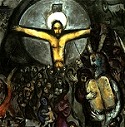
02.03.12 (Shevat 10, 5772) Some people seem to think that the gospel means that God's wrath for sin has been negated (or "satisfied") by the sacrifice of Yeshua, and now God no longer sees or judges sin.... Because of Yeshua, the cross "extinguishes Mount Sinai's flame" and now everyone is acceptable to God -- regardless of their behavior... "As far as the east is from the west, so far has He put our sins away from us..." God's love trumps all things and now we can all "let it be" and "let go, let God..."
Now while this appeal to the unconditional love of God may appear compassionate, it is actually quite superficial view of the Divine Love to say that God does not infinitely care for the sanctification of people. What sort of a father expresses love for his child by letting him do whatever he might want? It has been said that the opposite of love is not anger but rather indifference. God's wrath for our sin is correlated to his passion for our healing, and therefore "he disciplines the one he loves and chastises every son whom he receives." Minimizing the seriousness of sin is therefore to minimize the love of God, which is a personal affront to the holiness and glory of God... Note only that, but minimizing the dreadful weight of sin impugns the worth and dignity of the human soul that is created in God's image and likeness. Indeed, the very meaning and message of the cross turns on both the infinite offensiveness of our sin and the infinite love of God that is willing to atone for that sin. We are redeemed at the great cost of the sacrificial death of the precious and most glorious Son of God....
Samson once posed the following prophetic riddle, "Out of the eater came something to eat; out of the strong came something sweet," referring to the honey that came from the carcass of the lion. Just as the men who heard him could not solve the riddle, so the message of the cross is regarded as foolishness to those who are perishing (Judges 14:14; 1 Cor. 1:18). The world cannot fathom the mystery that from the great evil of the cross would come a greater and surpassing good, and that from the sting of death would come sweetness...
Another way to say this is that God's love triumphed over His justice by bearing the punishment for sin in Himself, by shedding divine blood for atonement and becoming a whole burnt offering (asham) for our guilt and shame. This now is how we are able to draw near (karov) to God, in fear and trembling over the incredible cost of the divine ransom paid on our behalf (Heb. 7:19). Only the Cross allows God's justice and mercy to kiss (Psalm 85:10; 89:14); only the Cross reveals the true Holy of Holies where the blood was placed over the Ark of the Law; only the Cross intimates the Inner Sanctum of God's heart. Because of the cross, a holy God is able to truly love and help the trusting sinner (Rom. 3:26).
חֶסֶד־וֶאֱמֶת נִפְגָּשׁוּ
צֶדֶק וְשָׁלוֹם נָשָׁקוּ
che·sed · ve·e·met · nif·ga·shu
tze·dek· ve·sha·lom · na·sha·ku

"Steadfast love and truth meet;
righteousness and peace kiss each other"
(Psalm 85:10)

Hebrew Study Card
At the cross, good overcame evil and vanquished its authority -- but this great truth does not negate what evil itself is... Evil is still present in the world and will be dealt with according to God's attributes of justice (middot ha-din), or His "left hand." The philosophy of the world always seeks to eliminate the idea of the holy. Political correctness allows "everyone to be special" by negating the category of what is indeed truly exceptional. Polytheism is part of the world's ideology because it denies the absolute uniqueness of the LORD God Almighty, Maker of Heaven and Earth... The Pharaoh would not have minded if the LORD was regarded as a "god" who might be made part of the pantheon of Egypt, but he stumbled over the LORD's absolute authority and sovereignty... God had to change Pharaoh's obstinate thinking so that he no longer would ask, "Who is the LORD that I should obey him?" (Exod. 5:2) but rather - mi kamokha - "Who is like the LORD among the gods" (Exod. 15:11). To the world and its political players the LORD has this word: "Woe to those who call evil good and good evil, who put darkness for light and light for darkness, who put bitter for sweet and sweet for bitter (Isa. 5:20). "He who justifies the wicked and he who condemns the righteous are both alike an abomination to the LORD" (Prov. 17:5; 20:24). As the prophet Elihu asked, "Shall one who hates justice govern?" (Job 34:17).
Denying that evil is real is to negate the cross and to subvert its message. We are not called to "go into all the world" and say that "everything is okay with you -- no matter what you believe or what you do..." That is not the message of the righteous King Yeshua nor is it the doctrine of His kingdom! The cross is not a license to sin but is the place where the sinner goes to die. The cross is the verdict of God upon sin, and by faith you can have Yeshua be your remedy or you can rely on your own devices...
There is a "dark side" to the good news, friends, and that is the bad news that if you reject the remedy of God's salvation by loving what is evil, you will surely perish:
"This is evidence of the righteous judgment of God, that you may be considered worthy of the kingdom of God, for which you are also suffering-- since indeed God considers it just to repay with affliction those who afflict you, and to grant relief to you who are afflicted as well as to us, when the Lord Jesus is revealed from heaven with his mighty angels in flaming fire, inflicting vengeance on those who do not know God and on those who do not obey the gospel of our Lord Jesus. They will suffer the punishment of eternal destruction, away from the presence of the Lord and from the glory of his might, when he comes on that day to be glorified in his saints, and to be marveled at among all who have believed, because our testimony to you was believed." - 2 Thess. 1:5-10
The LORD is called Adonai Tzeva'ot (יְהוָה צְבָאוֹת), LORD of the armies of Heaven.... If you are a saved soul, you are part of His regiment to deal with this world... Fight the good fight of faith; be strong and of good courage... "The LORD tests the righteous, but his soul hates (שָׂנְאָה) the wicked and the one who loves violence" (Psalm 11:5).... Yes, although it might sound "politically incorrect," God hates sin and will repay those who love it and who willingly spurn God's gracious remedy for it. God cannot deny His own nature.
The Cross is the utter repudiation of what the world worships... The message of the cross is always offensive to the natural man, since it reveals God's verdict about his pride. And though we are indeed called to be "peacemakers," this does not mean that we concede to this evil world and its proud devices. No, we offer the terms of peace in God's Name and invite the rebels of this world to surrender... Where it is written, "have your feet shod with the readiness of the gospel of peace" (Eph. 6:15), the "peace" referred to is God's offer of reconciliation; it does not mean going around "making nice" to everyone...
כִּי כָּל־הָעַמִּים יֵלְכוּ אִישׁ בְּשֵׁם אֱלהָיו
וַאֲנַחְנוּ נֵלֵךְ בְּשֵׁם־יְהוָה אֱלהֵינוּ לְעוֹלָם וָעֶד
ki · kol · ha·a·mim · ye·le·khu · ish · be·shem · e·lo·hav
va·a·nach·nu · ne·lekh · be·shem · Adonai · E·lo·hei·nu · le·o·lam · va·ed

"For all the peoples walk each in the name of its god,
but we will walk in the Name of the LORD our God forever and ever."
(Micah 4:5)

The LORD is "a God of truth and without iniquity, righteous and upright is He" (Deut. 32:4). God calls us to acknowledge His absolute uniqueness and holiness. It is not loving to tolerate sin... that is the philosophy of the devil, not God... The philosophy of the world always aims to eliminate the idea of the holy. The world loves "tolerance" and "political correctness" but reveals its own intolerance whenever it confronts a man or woman of real conviction. God pronounces "woe" to this world and its doctrines; soon everything hidden shall be brought to the light.
The "Right Hand of God"

[ The following entry is related to this week's Torah reading (Beshalach). Please read the Torah portion to "find your place" here.]
02.02.12 (Shevat 9, 5772) The Torah says that the Israelites went into the midst of the sea" (בּתוֹךְ הַיָּם), and not merely into the sea (Exod. 14:22). Because the Shekhinah Cloud ascended above them, they were surrounded by the waters on all sides, a figure of baptism (tevillah) that pictures a "birth canal" (1 Cor. 10:1-2,11). Just as the blood on the doorway marked the passageway that led to life, so was the sea when the people passed through it.
The Torah further states that when the Israelites entered the sea, it became dry land, with the water as "a wall (חוֹמָה) to their right and to their left" (Exod. 14:29). To commemorate this miracle, the text of the "Song of the Sea" (i.e., Exod. 15:1-21) is stylized to resemble a "wavy wall," with the words written in alternating "bricks" to look like a wave of water....
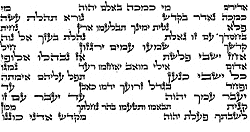 |
Note that the sages count exactly 198 words in this song, which is the numerical value for the word tzchok (צחק), a word that means "laughter" and is the word used to describe Sarah's response when she finally gave birth to Isaac (Gen. 21:6). According to Rabbi Bachya, the laughter in Isaac's name comes from Abraham's joy (Gen. 17:17). The joy of Isaac's birth, then, is linked with the "birth" of the nation of Israel at the time of the Exodus, just as his symbolic death during the Akedah represents Israel's rebirth...
When this song first appears in the Torah (i.e., Exod. 15:1), there is a grammatical anomaly. The song begins az yashir (אָז יָשִׁיר), "then he sang," using a singular verb, though the subject is clearly plural (i.e., Moses and the sons of Israel). The sages note that the Israelites prophetically sang about their deliverance as "one new man" (אִישׁ־אֶחָד חָדָשׁ). After they left their old life of Egypt behind them in the waters, they were made into a "new creation" (בְּרִיאָה חֲדָשָׁה) by the grace and power of God... Similarly it is written that after the people had crossed over and Moses lifted his staff so the sea returned to its place, "Israel saw the Egyptian soldiers (plural) dead (מֵת - singular) on the seashore" (Exod. 14:30). The power, the allure, and the mystique of Egypt was dead; the "Egypt-principle," the power of the flesh, was destroyed before the eyes of Israel.
 |
Though the people had been set free a week earlier during the Passover, the Torah identifies the complete deliverance of Israel only after they had crossed the sea: "On that day God delivered Israel from the hand of Egypt" (Exod. 4:30-31). When a slave escapes his master, he is not at ease as long as his master lives, but when he learns that his master has died, he experiences liberation and security. This may be understood analogically in light of the "baptism" of Israel in the sea, which represented the death of their former identities and their rebirth as a free people. Likewise because of Yeshua we are free from the power of Satan, since the Messiah came to destroy his works in our lives (Heb. 2:14; 1 John 3:8).
The Hebrew word for salvation (or deliverance) is "yeshuah" (יְשׁוּעָה), from the verb yasha (יָשַׁע) meaning to "make wide" or to "set free." The word is first used in the Book of Exodus in reference to the splitting of the sea, where Moses told the people, "Fear not, stand firm, and see the salvation of the LORD (i.e., yeshuat Adonai: יְשׁוּעַת יְהוָה), which he will work for you today" (Exod. 14:13). After the LORD parted the sea and destroyed the pursuing Egyptians, the word yeshuah is used to praise the LORD for His saving deeds performed on behalf of the people: "The LORD is my strength and my song, and He has become for me salvation (ויְהִי־לִי לִישׁוּעָה); this is my God, and I will praise him, my father's God, and I will exalt Him" (Exod. 15:2).
In this connection note that the Hebrew name for "Joshua" is Yehoshua (יְהוֹשֻׁעַ), meaning "the LORD is salvation" (from יְהוָה and יָשַׁע). During the Second Temple period, Yehoshua was commonly shortened to Yeshua (יֵשׁוּעַ), the Hebrew name for Jesus (according to the late Dr. David Flusser, Professor of the Second Temple Period at the Hebrew University of Jerusalem, "Yeshua" was actually the third most popular male name during the Second Temple period). I am going somewhere with all this, so please try to stay with me... But first note that "the LORD is Salvation" is connected with the name of Yeshua our Lord.
Israel's deliverance from the power of Egypt is described as the work of the "right hand of God" (יְמִין יְהוָה): "Your right hand, O LORD, glorious in power, your right hand, O LORD, shatters the enemy" (Exod. 15:6). This phrase is a metaphor of God's power and strength that gives the victory on behalf of His people. The sages say that when Israel does God's will, His "left hand" (i.e., His attribute of justice as Elohim) becomes His "right hand" (i.e., His attribute of mercy as YHVH). Matt. 25:31-46. The statement that Yeshua has ascended to the "Right Hand of God" therefore means He is the center of God's authority as YHVH. It is a statement of His glorification and exaltation. The "right hand of God" refers to YHVH's Throne, Power, and authority...
יְמִינְךָ יְהוָה נֶאְדָּרִי בַּכּחַ
יְמִינְךָ יְהוָה תִּרְעַץ אוֹיֵב
ye·mi·ne·kha · Adonai · ne·a·da·ri · ba·ko·ach
ye·mi·ne·kha · Adonai · tir·atz · oy·yev

"Your right hand, O LORD, is majestic in power,
Your right hand, O LORD, shatters the enemy."
(Exod. 15:6)
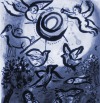
The theme of God's right hand continues in the Song of the Sea: "Who is like you, O LORD (יְהוָה), among the gods? Who is like you, majestic in holiness, awesome in praises, doing wonders? You stretched out your right hand (יְמִין יְהוָה) and the earth swallowed them. You have led in your steadfast love (חֶסֶד) the people whom you have redeemed; you have guided them by your strength to your holy abode" (Exod. 15:11-13). Celebrating our salvation is to proclaim the kingship and authority of Yeshua, who is the Right Hand of God. May His Name be exalted and magnified within your hearts, chaverim.
יְהוָה מֶלֶךְ
יְהוָה מָלַךְ
יִמְלךְ לְעלָם וָעֶד
Adonai · me·lekh,
Adonai · ma·lakh,
Adonai · yim·lokh · le·o·lam · va·ed
"The LORD reigns;
the LORD has always reigned;
the LORD will reign forever."

Emptiness and Hunger

02.01.12 (Shevat 8, 5772) The disciples assumed Yeshua needed earthly bread to find strength, but he said to them, "I have food to eat that you do not know about" (John 4:32). This "hidden bread" (i.e., lechem ha-nistar: לֶחֶם הַנִסְתָּר) was the passion and joy He had doing the will of God... Notice how the Teacher often used metaphors to elevate the thinking of his students. Earthly bread is a shadow of a deeper reality. Just as physical bread is a means to physical life, so "man shall not live by bread alone, but by every word that God speaks" (Deut. 8:4; Matt. 4:4). Therefore Yeshua is the true manna, the "Living Bread" (לֶחֶם חַיִּים) from heaven that sustains us in "the desert" of this world. He is the One who truly satisfies the heart by removing the inner pain of our emptiness and hunger.
The problem with many of us is not that we are so hungry, but rather that we are not hungry enough... We settle for junk food when God spreads out his banqueting table before us. There is a deeper hunger of the Spirit, and I pray we are all touched by heavenly hunger pangs; there is a "blessed hunger and thirst" that feeds our heart's cry for God (Matt. 5:6); there is a "divine discontent" that leads to a deeper sense of contentment for the heart...
It seems to me to be a test, as we have walked with the LORD for some time, to learn where to find what we really need... Hunger is a "messenger" that calls us to partake of life. All food is inherently sacrificial. When we experience hunger, inordinate desire, etc., then we are given the opportunity to bring our hearts before God to find His comfort and have our needs met... but should we disregard this grace, we will inevitably resort to seeking comfort elsewhere, and that leads us to trouble. (May God give us the blessing of contentment in Yeshua at all times, chaverim.)
Only Jesus truly satisfies; only Jesus gives us life... The Spirit of God's love calls out, "Seek Me and live" (Amos 5:4). If you are feeling empty today, ask God to feed you with His life-giving bread. Seek the LORD and His goodness. He is faithful and true and will surely answer the sincere cry of the heart: "You will desire me and find me, when you search for me with all your heart" (Jer. 29:13).
וּבִקַּשְׁתֶּם אתִי וּמְצָאתֶם
כִּי תִדְרְשֻׁנִי בְּכָל־לְבַבְכֶם
u'vik·kash·tem · o·ti · u·metz·a·tem
ki · tid·re·shu·ni · be·khol · le·vav·kem

"You will desire me and find me
if you search for me with all your heart"
(Jer. 29:13)

Hebrew Study Card
Note that this verse includes the implication that we will find God desirable when we search for Him (but not the other way around). In other words, if you do not search for God bekhol levavkha - "with all your heart" - then you will not desire and find Him. God wants us to search for Him, chaverim, so that He (alone) can meet our need for real love.
|





























































